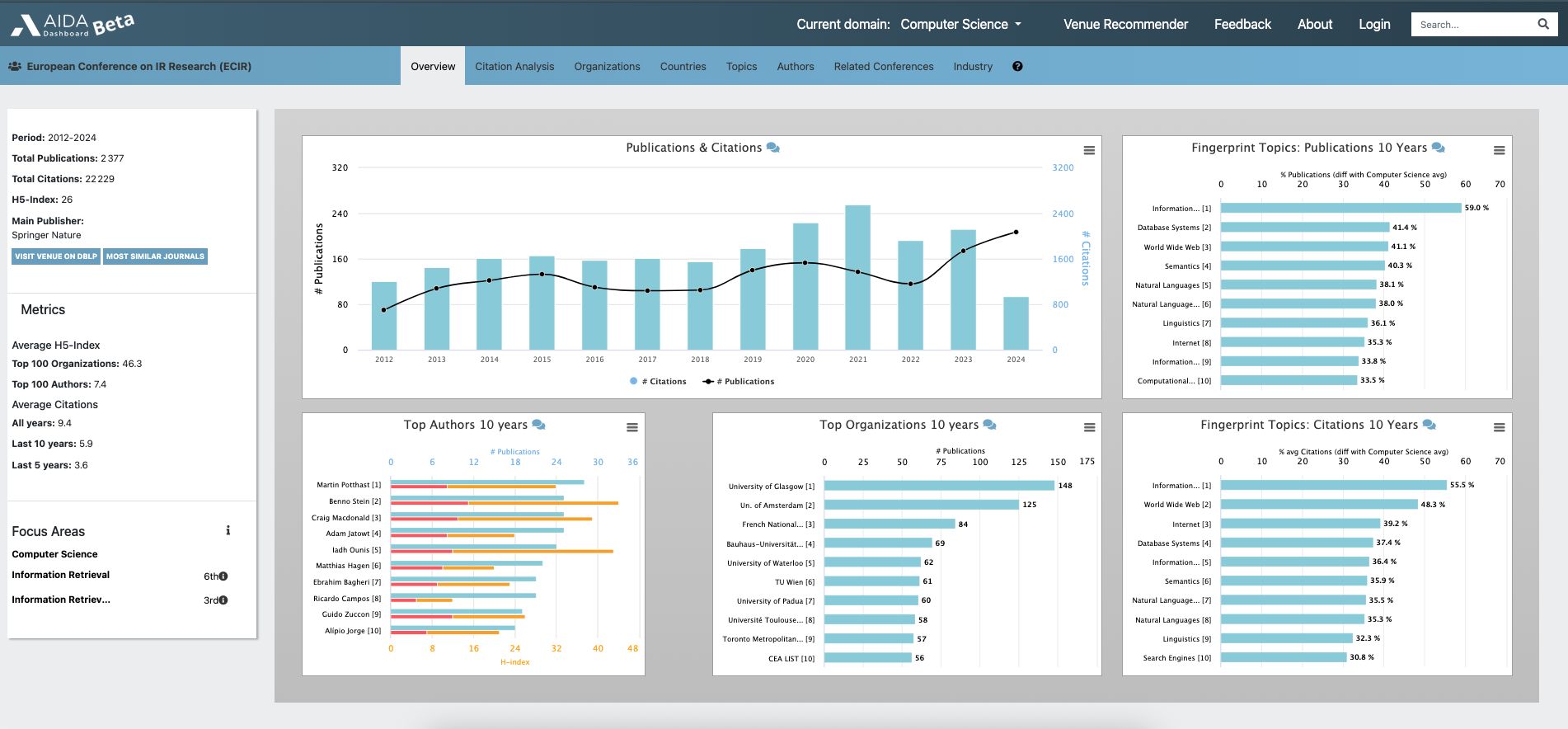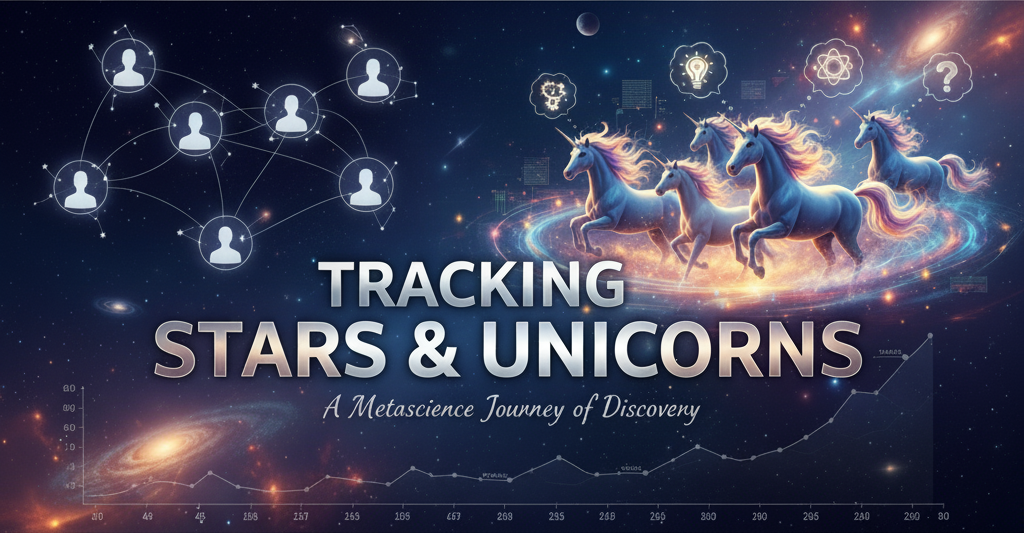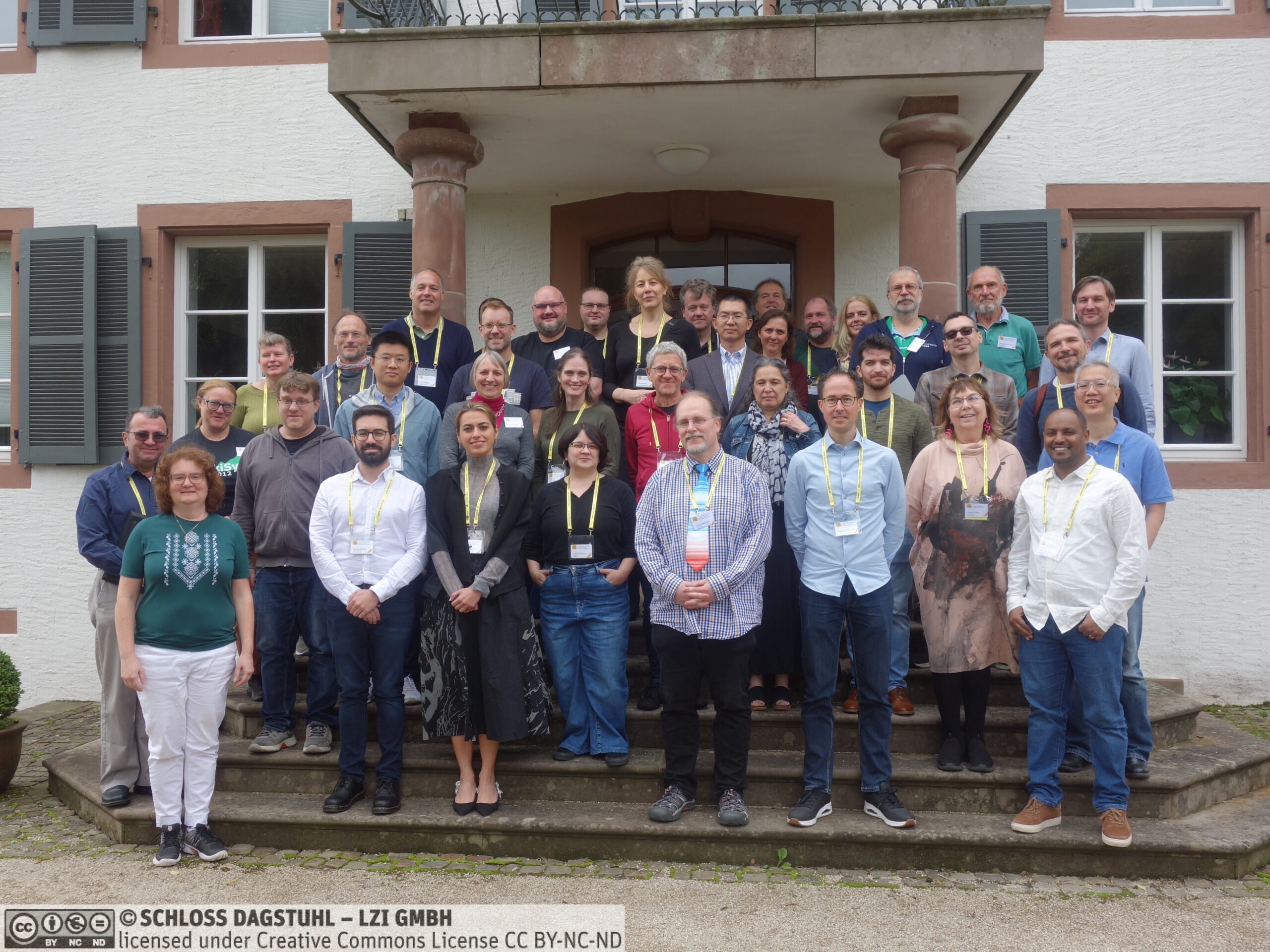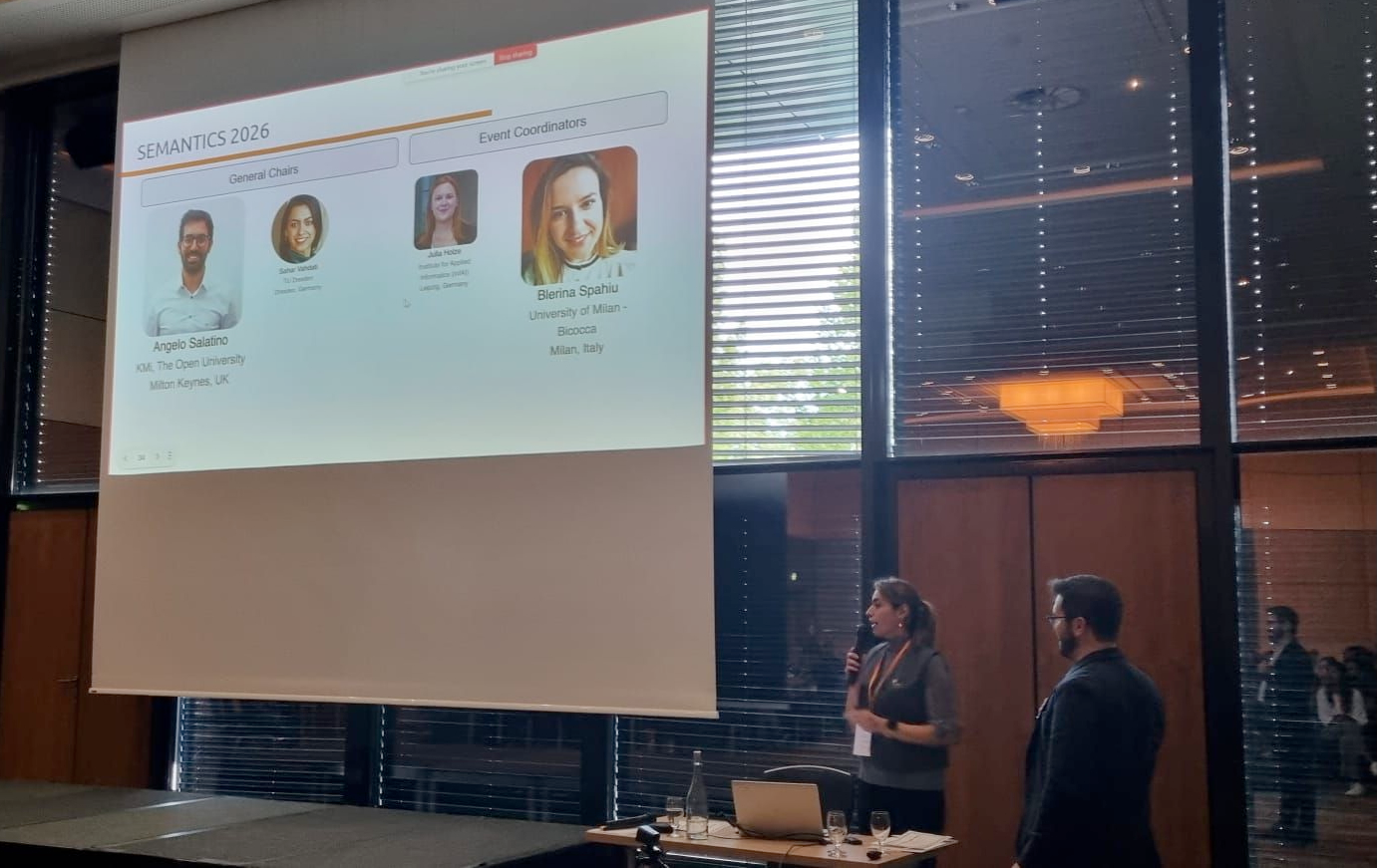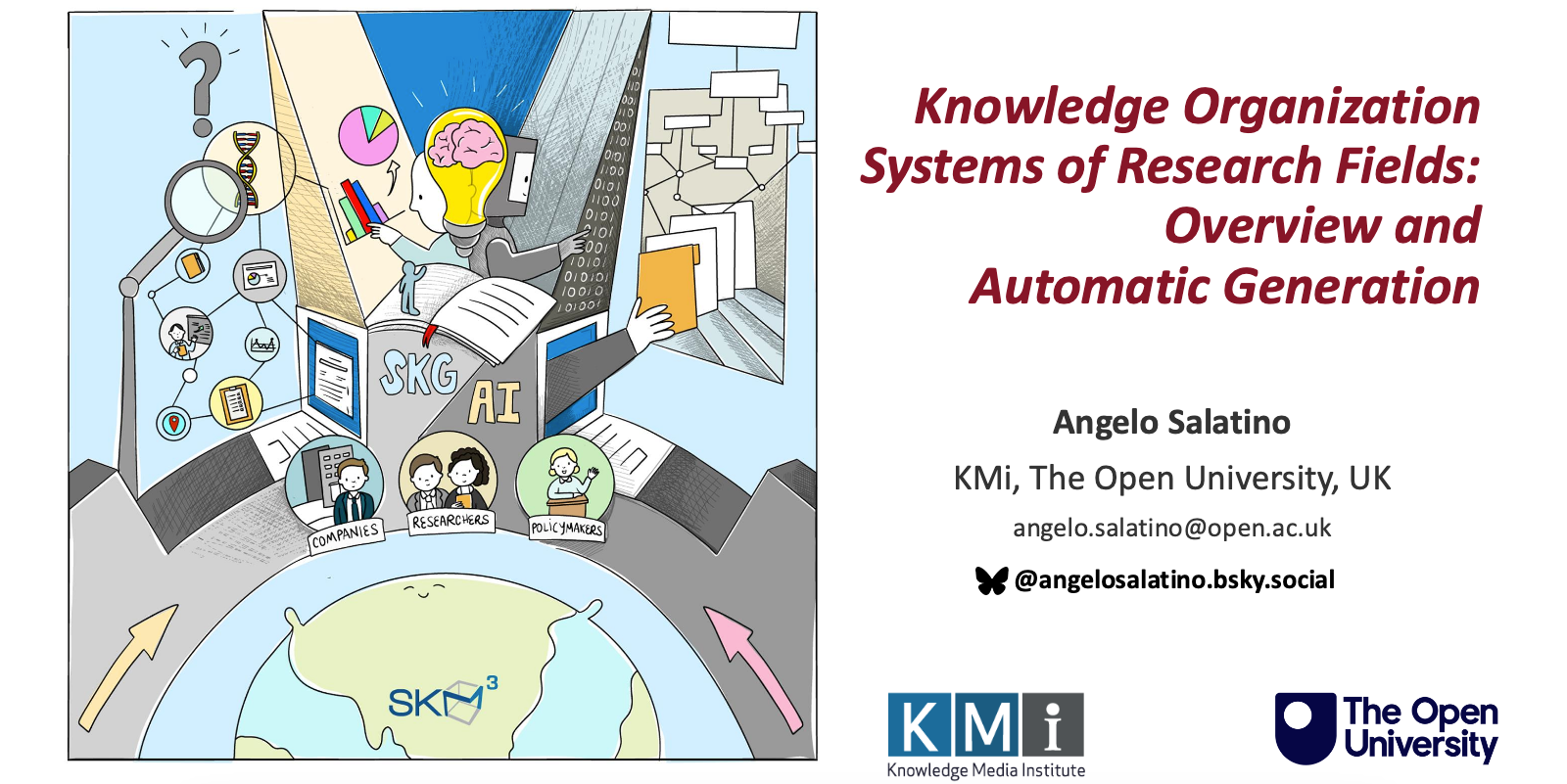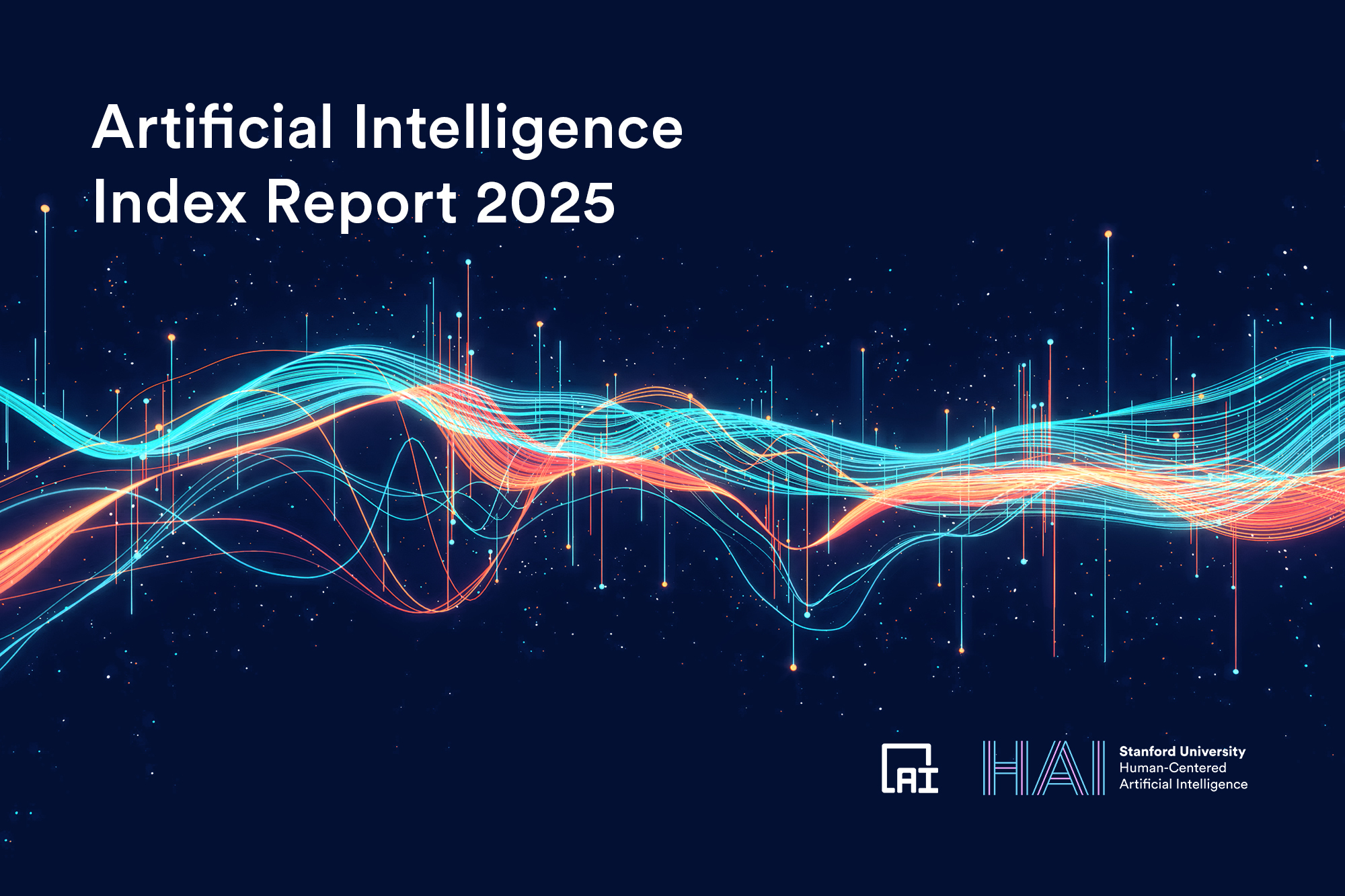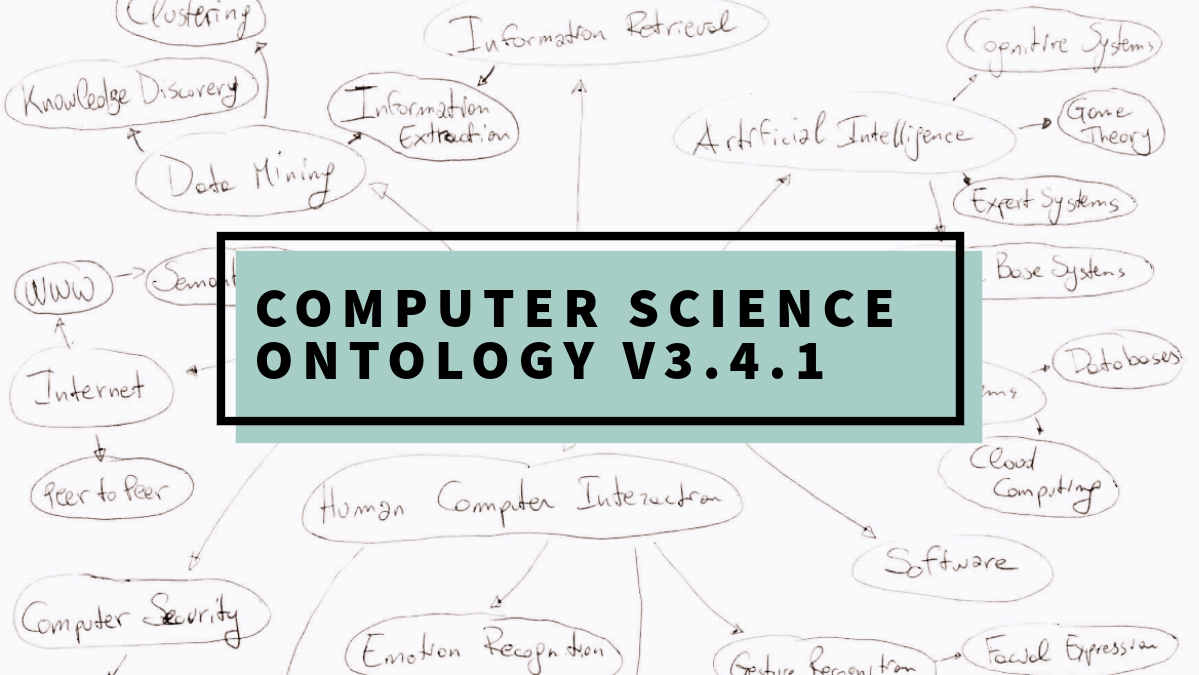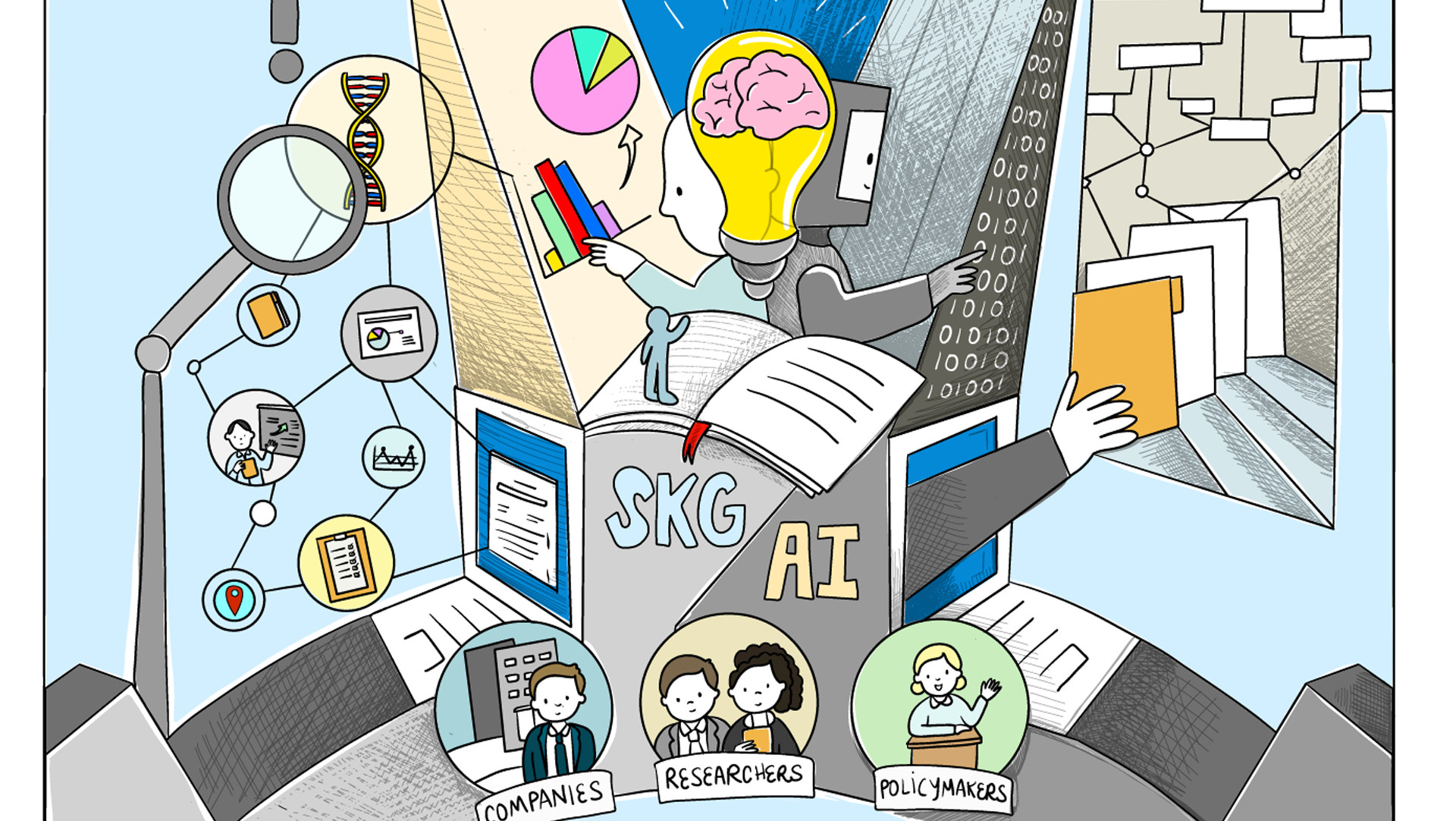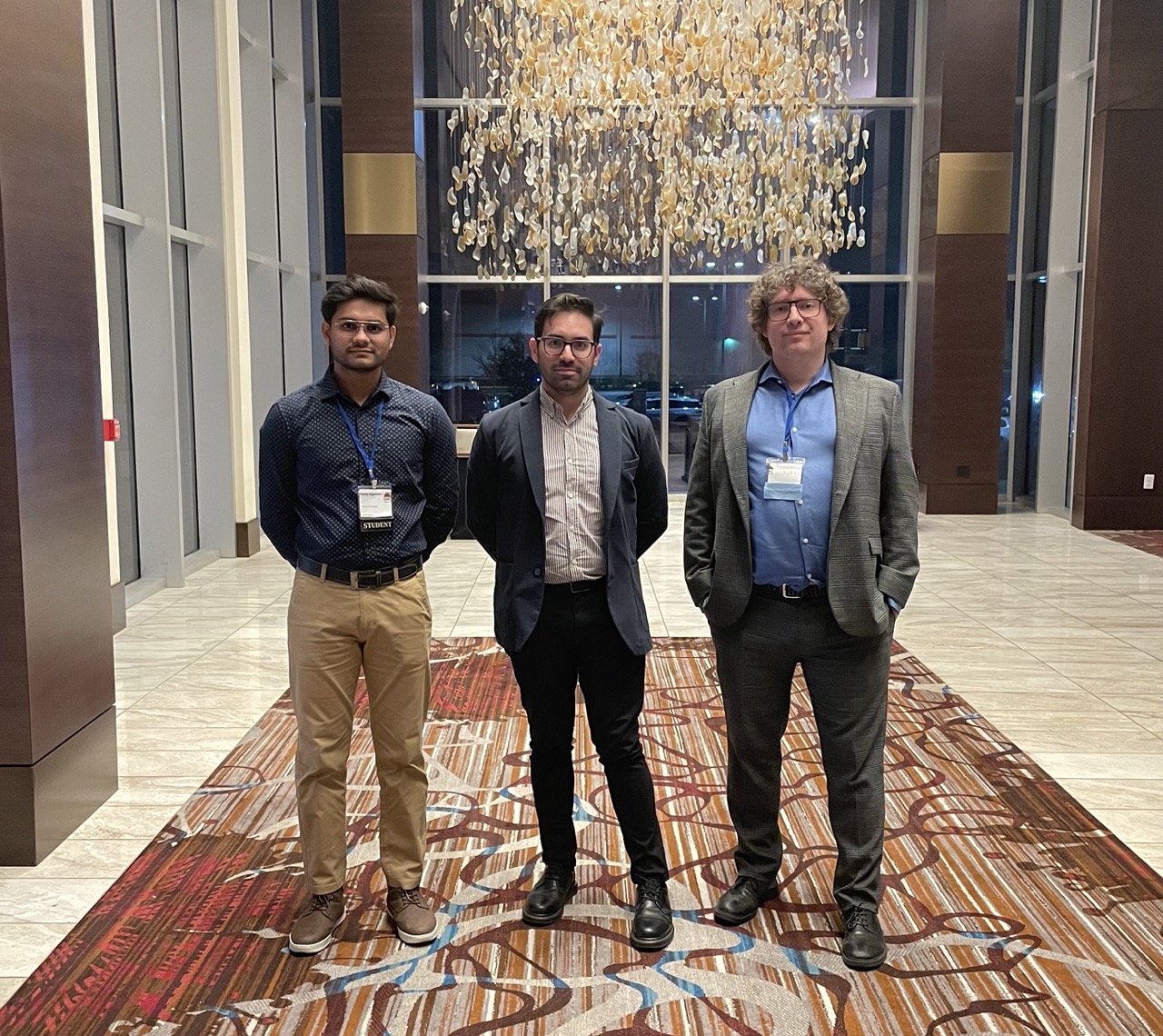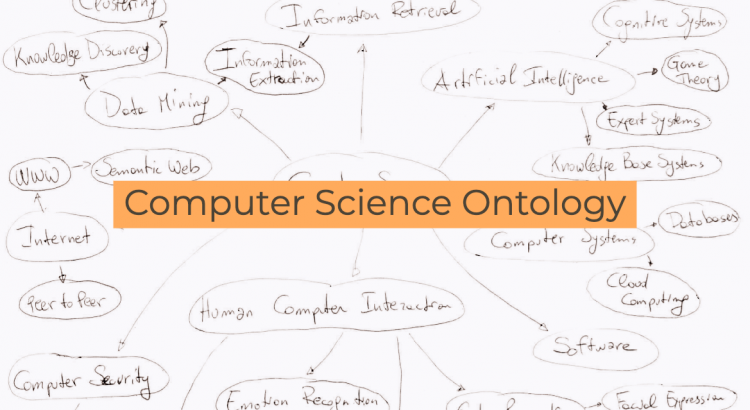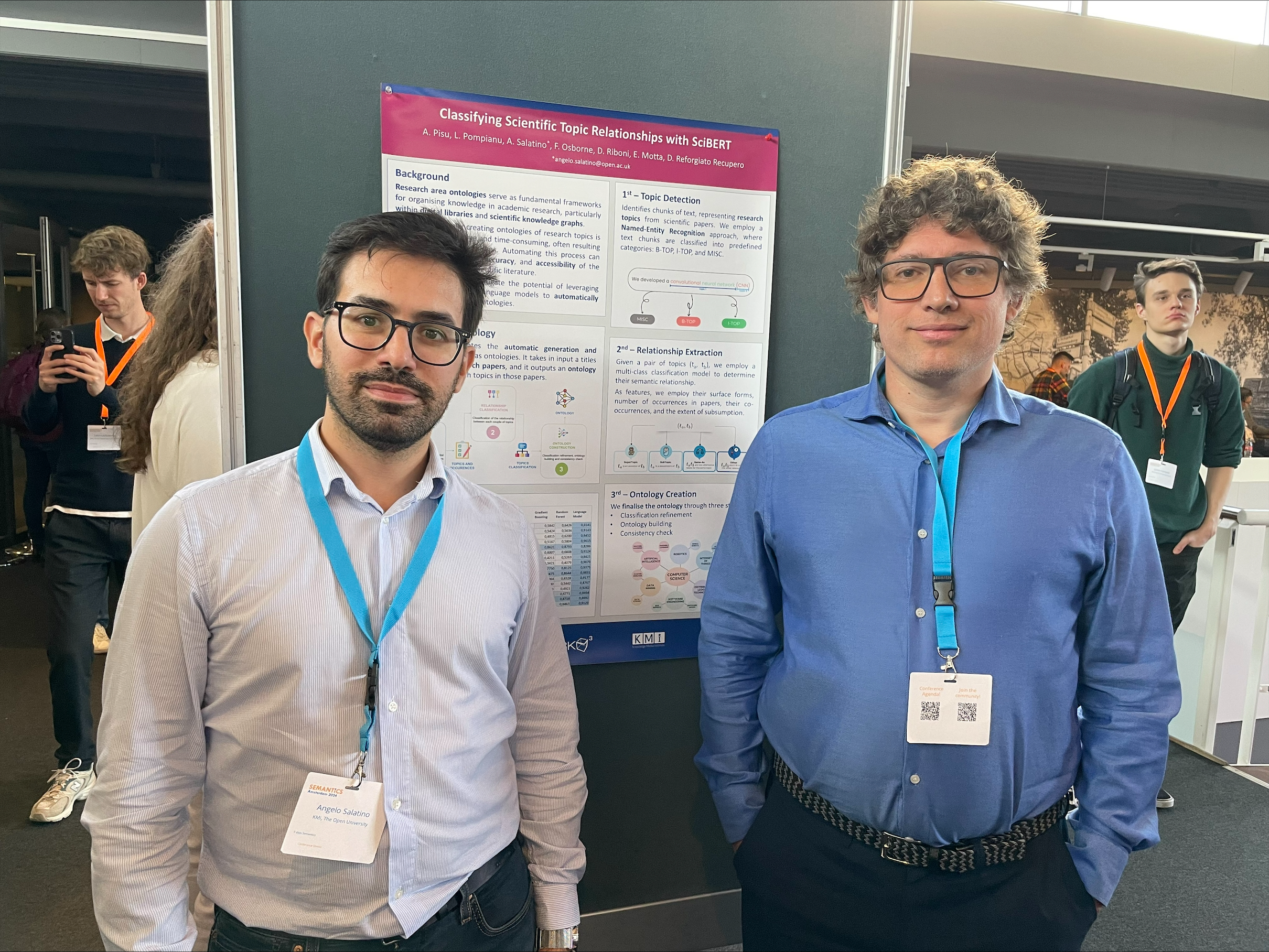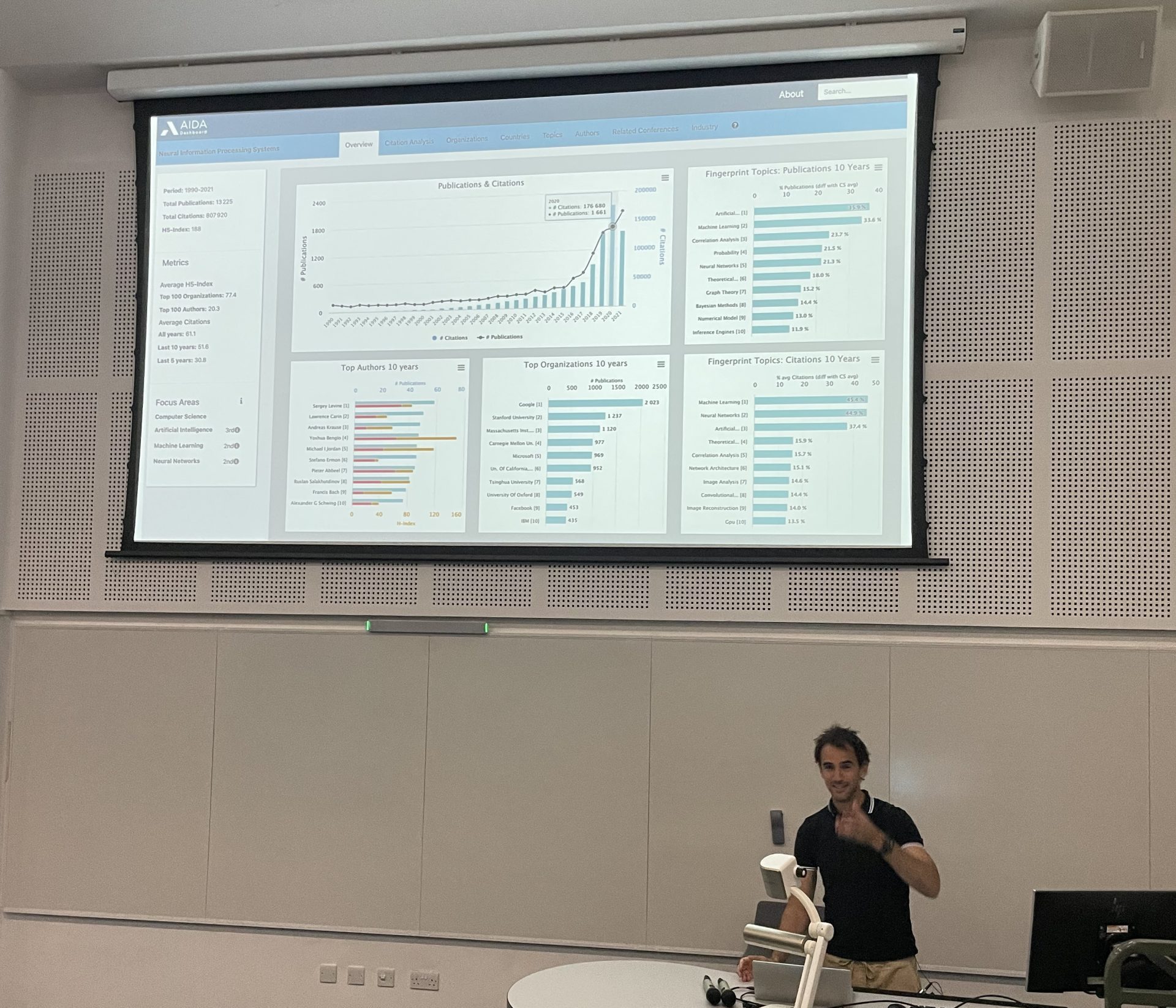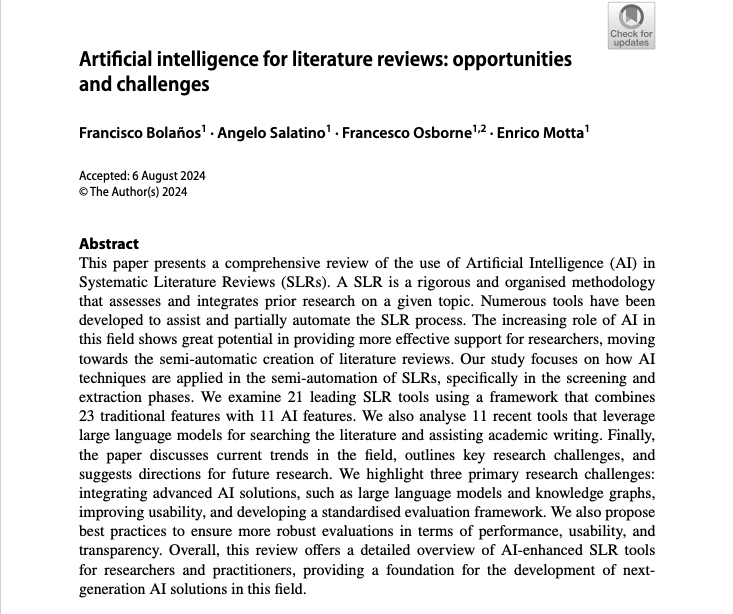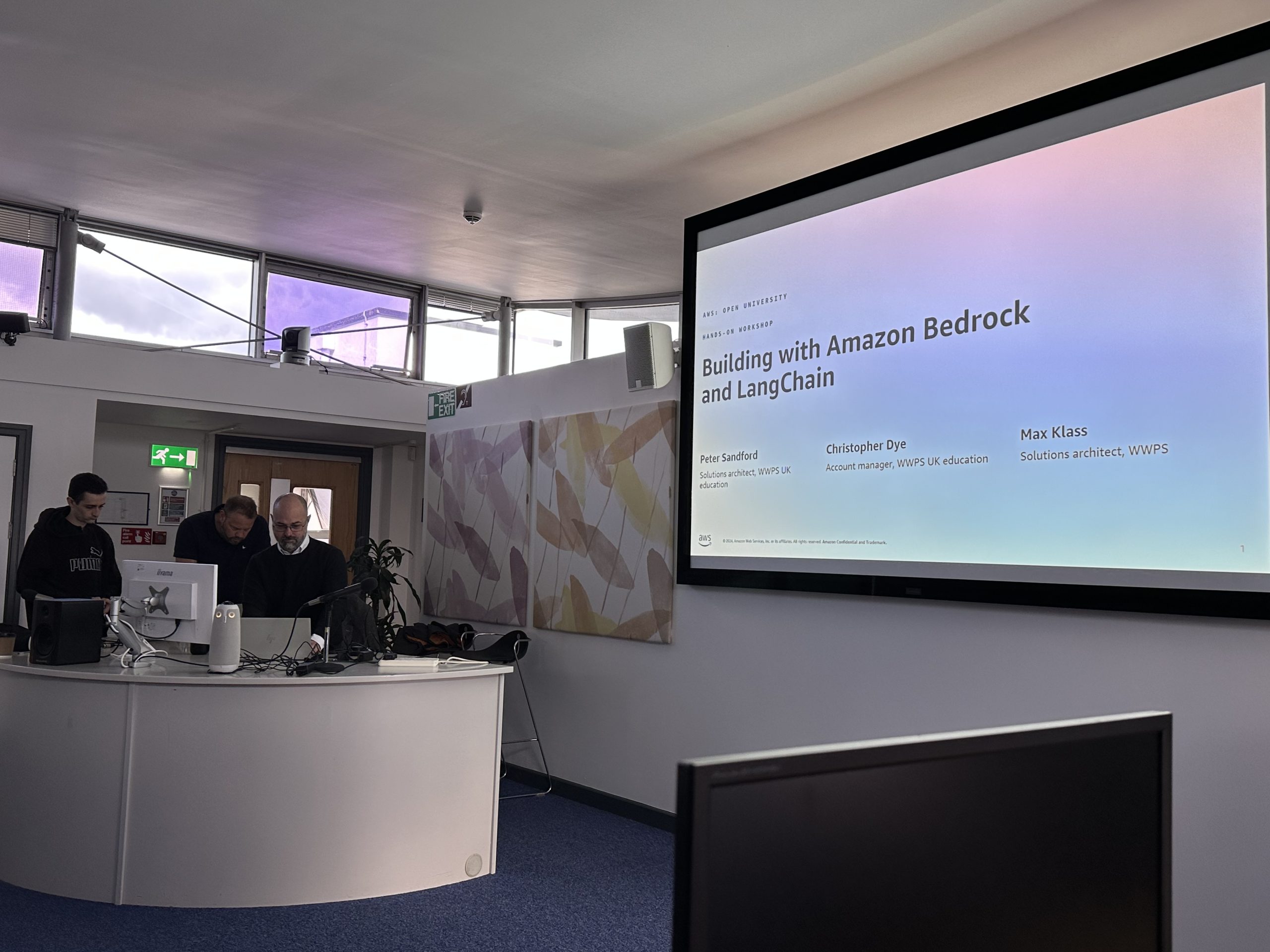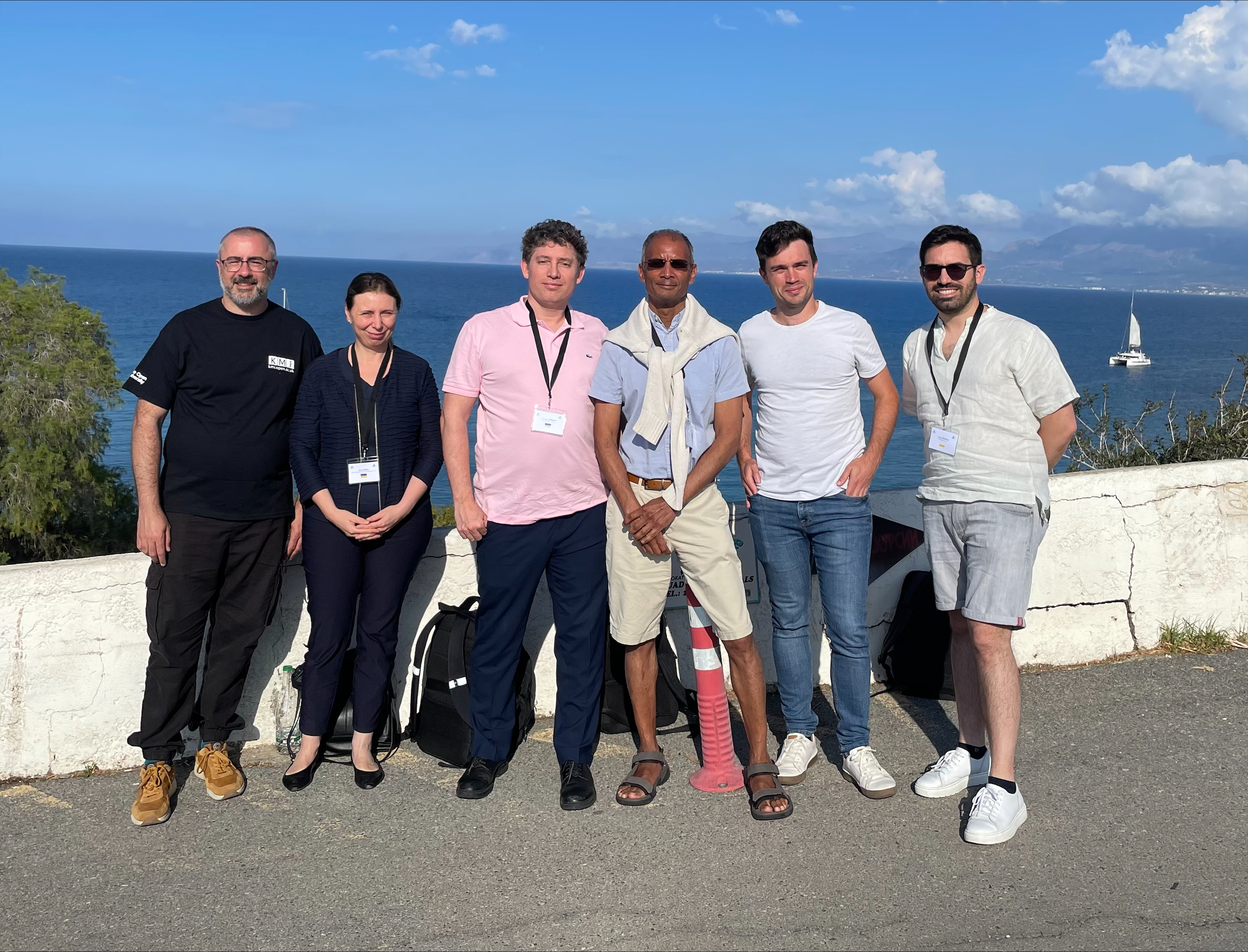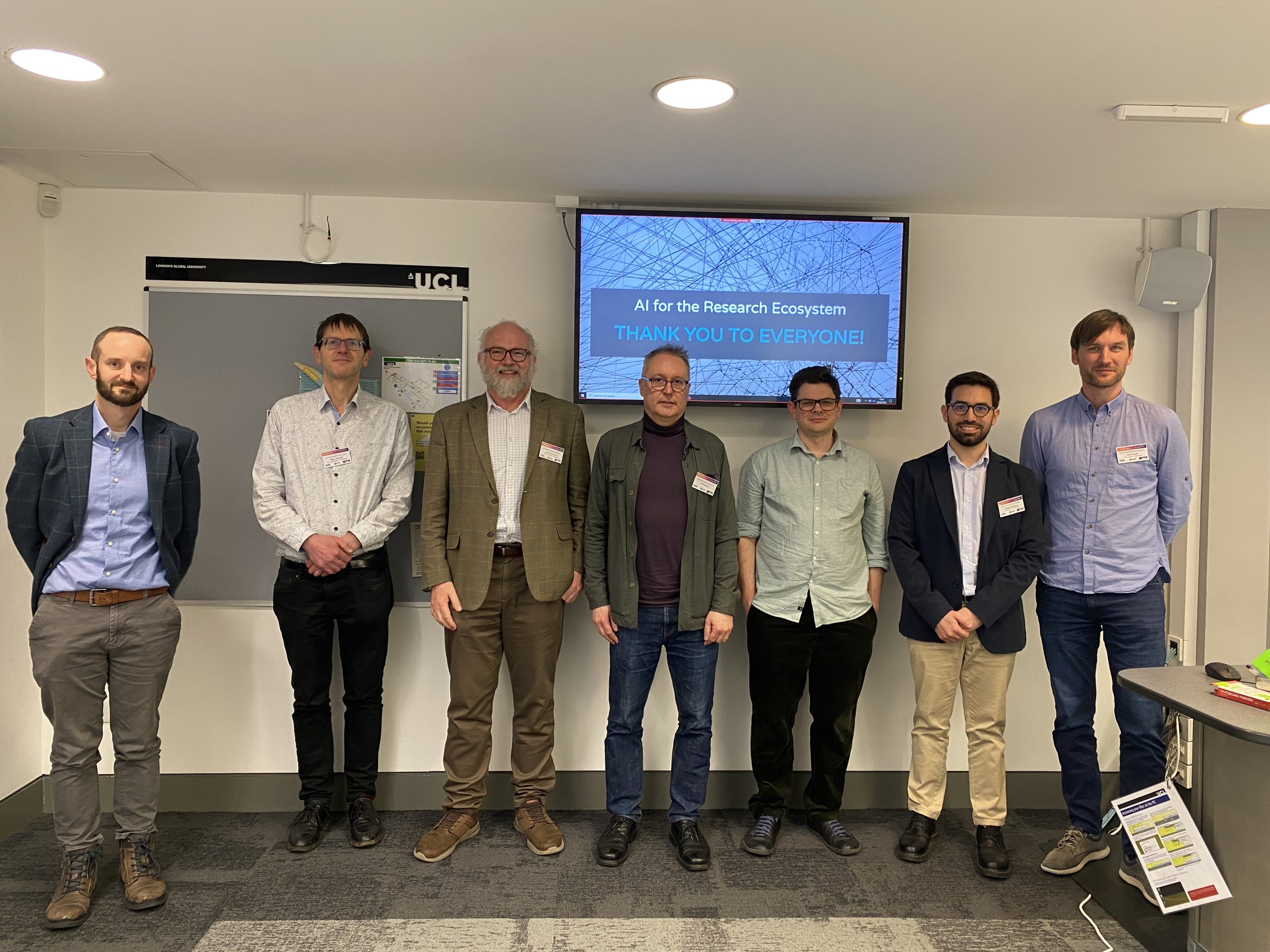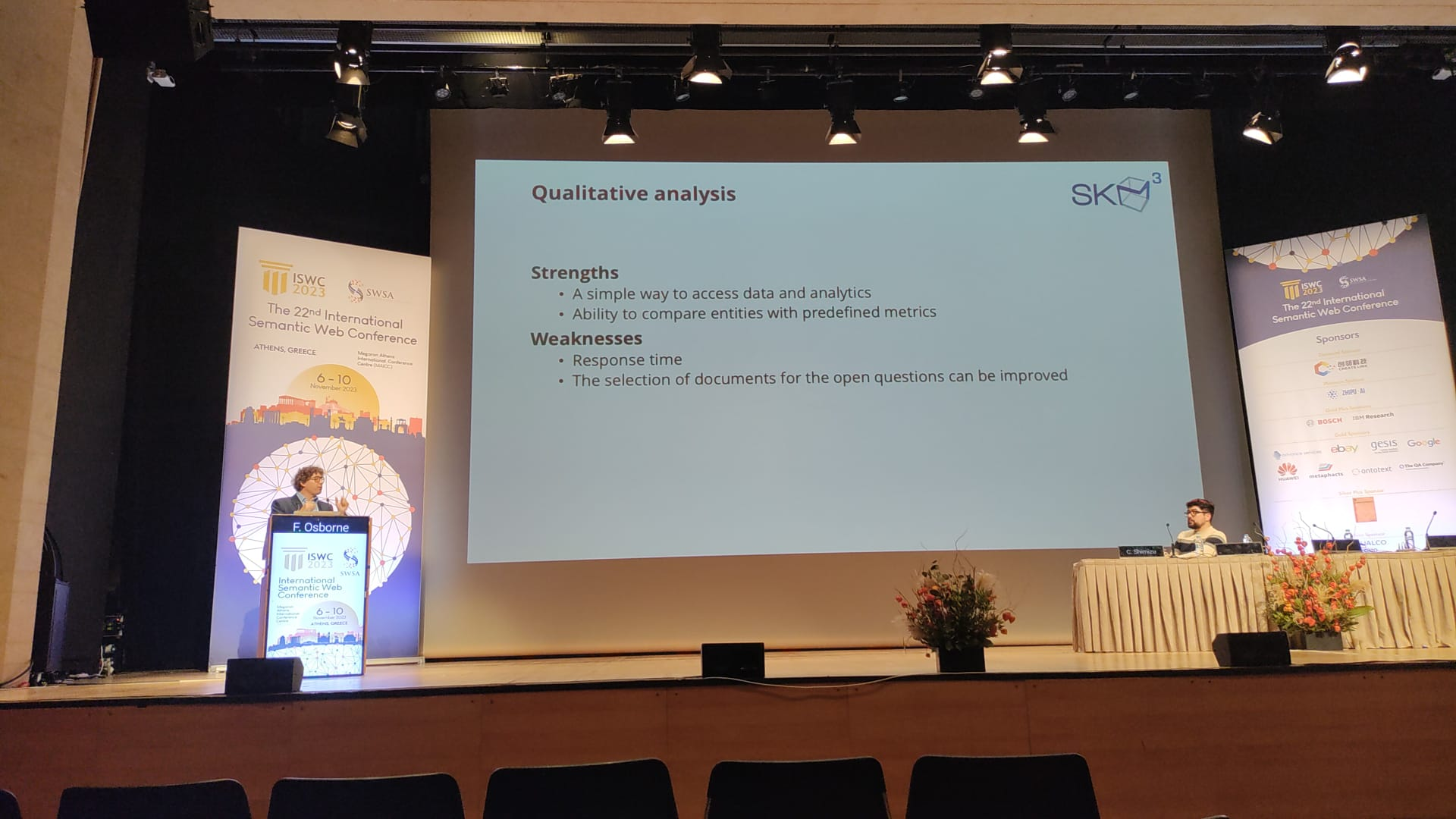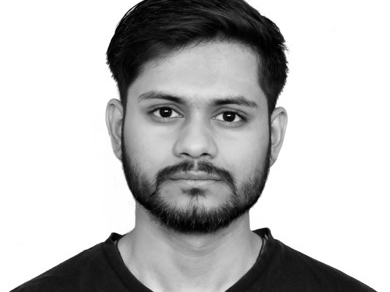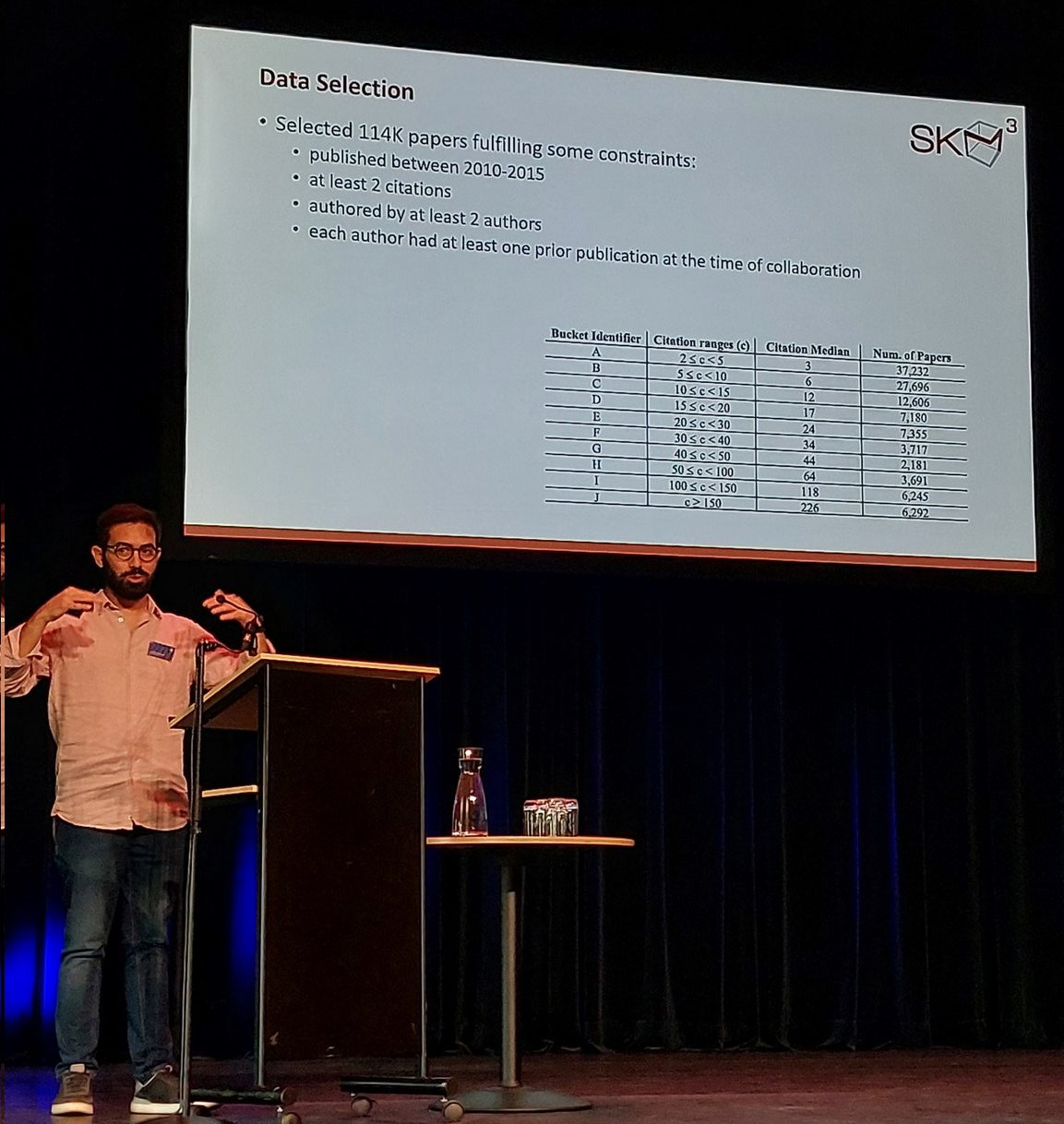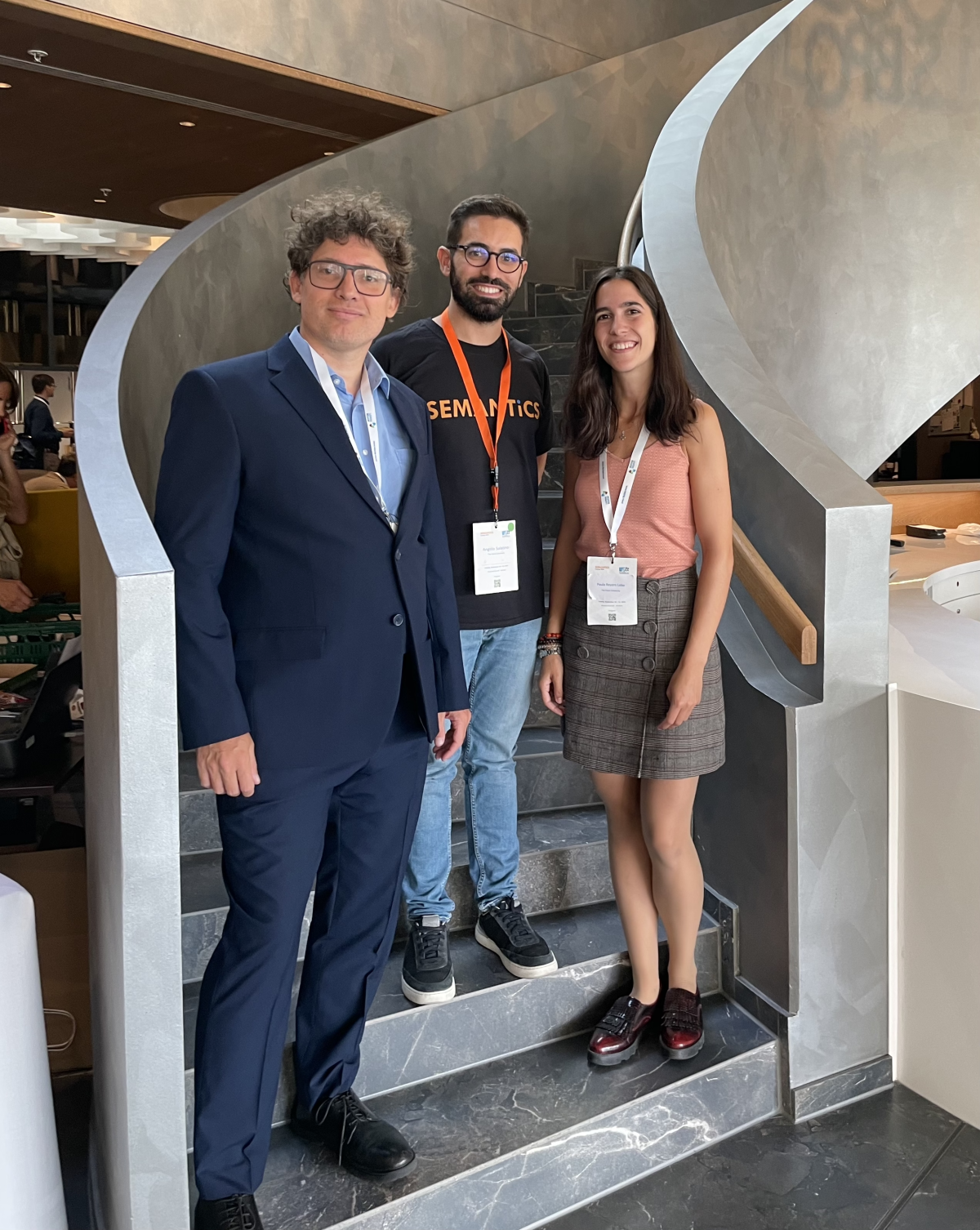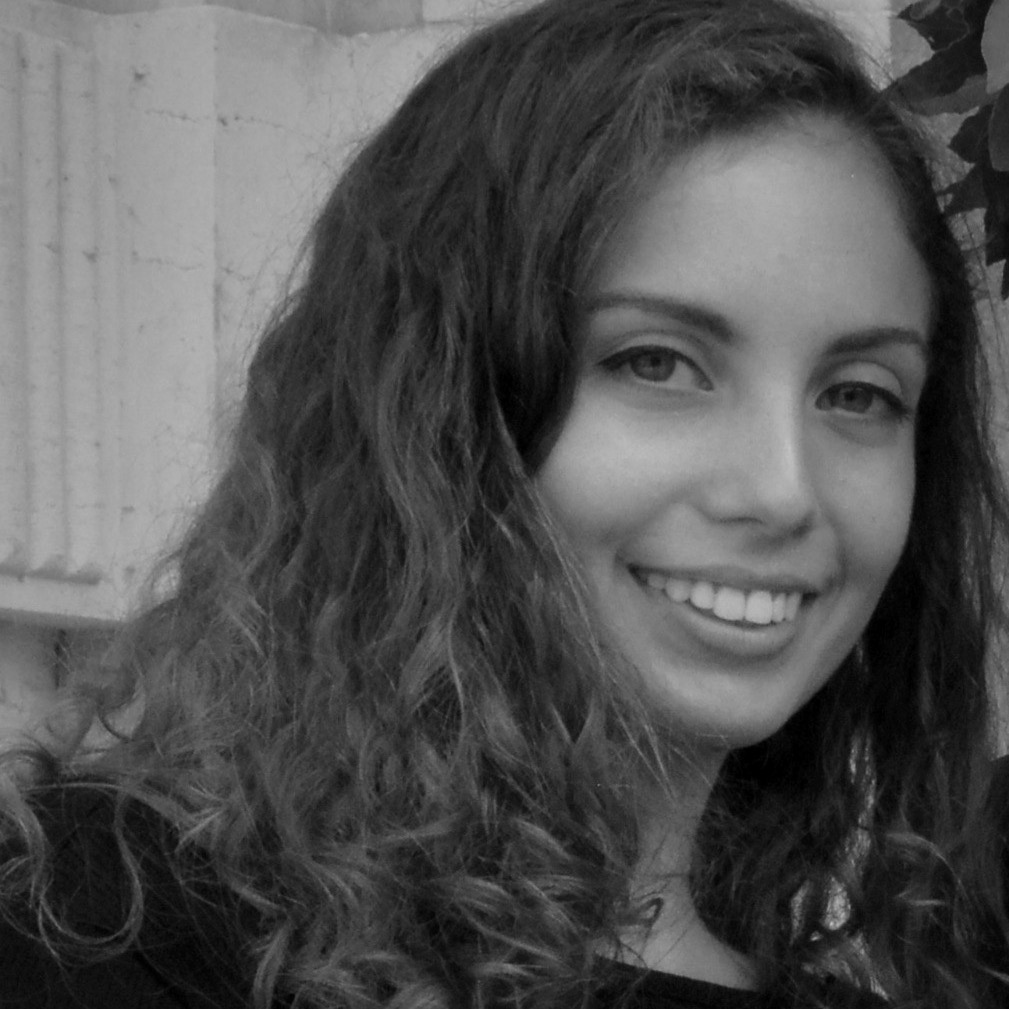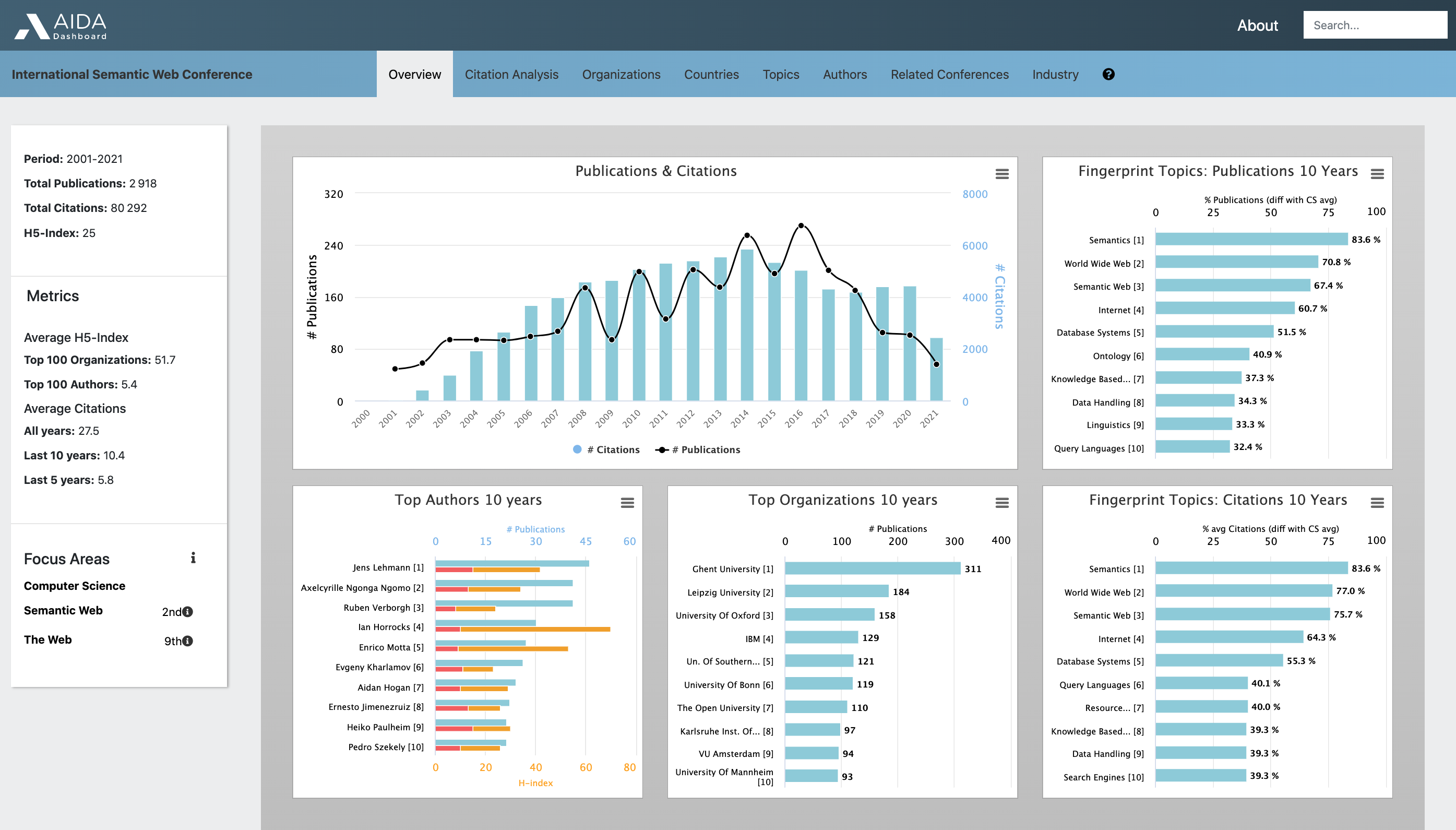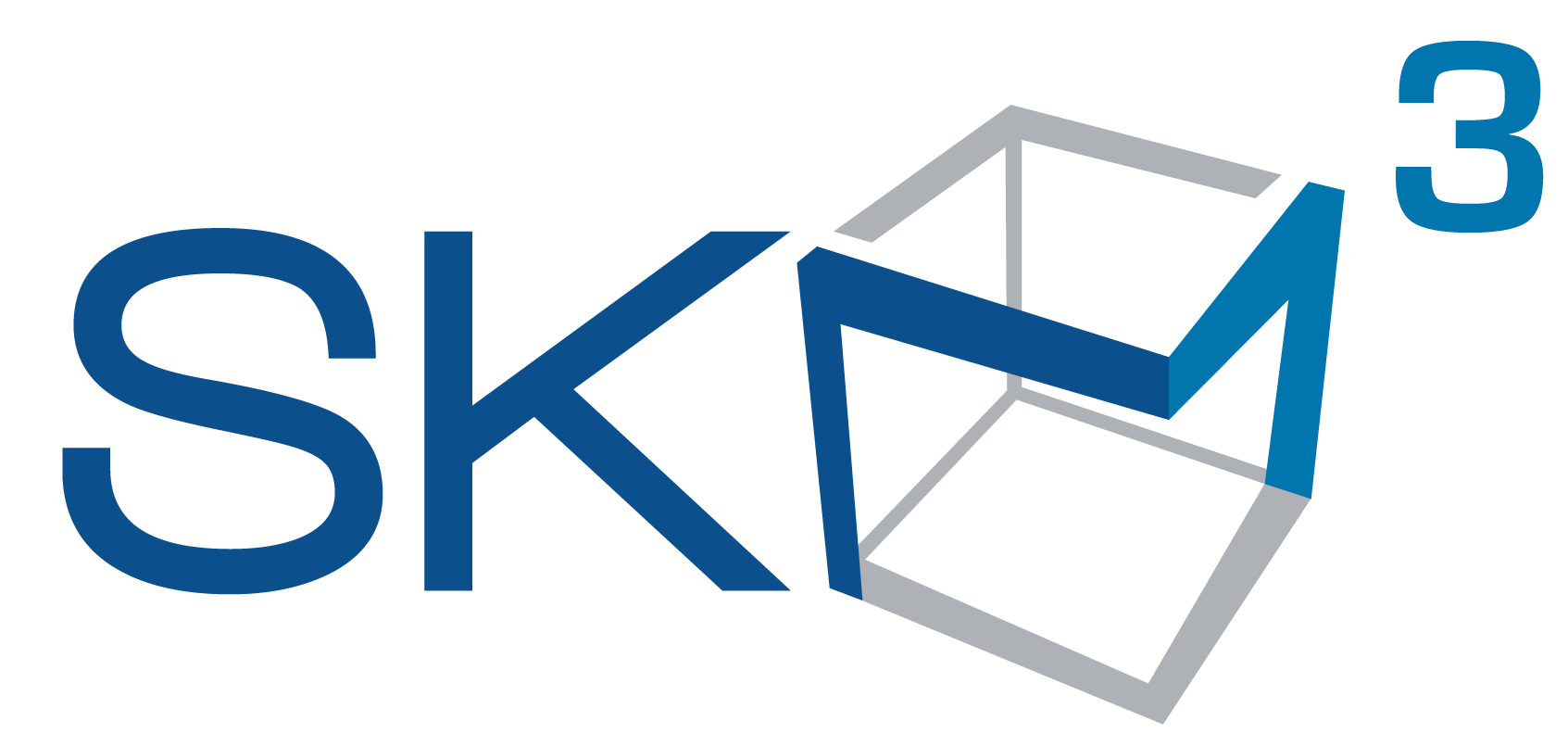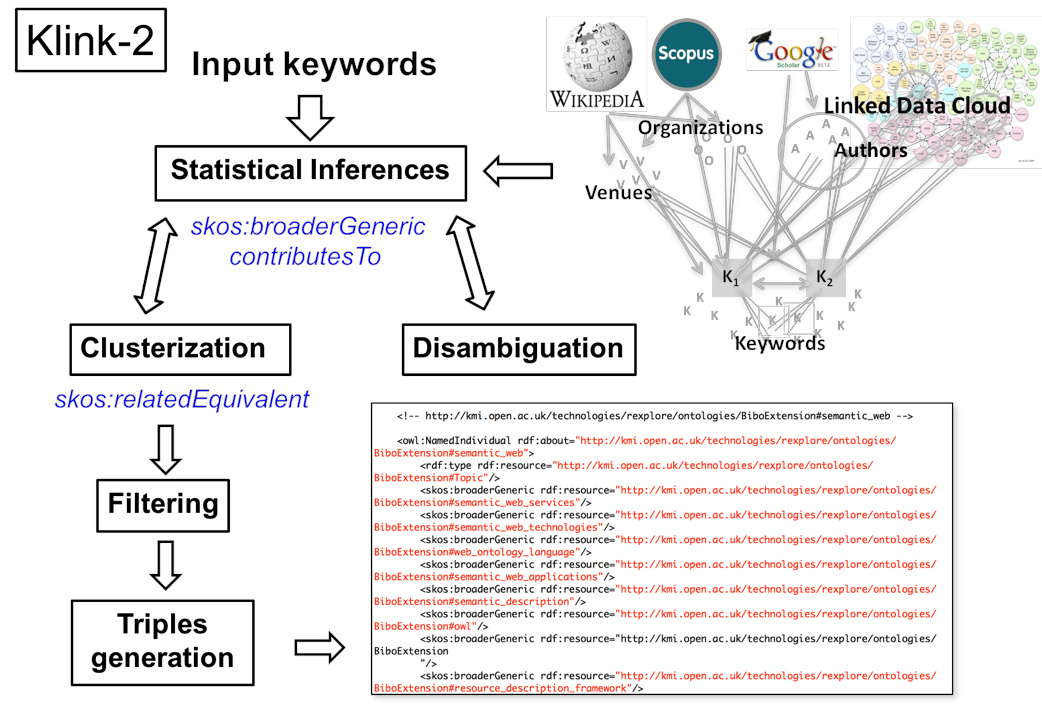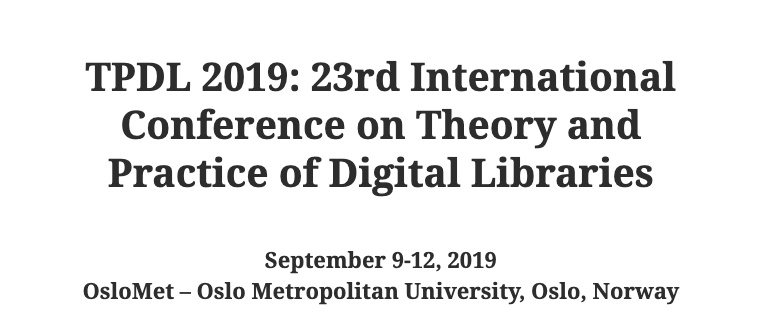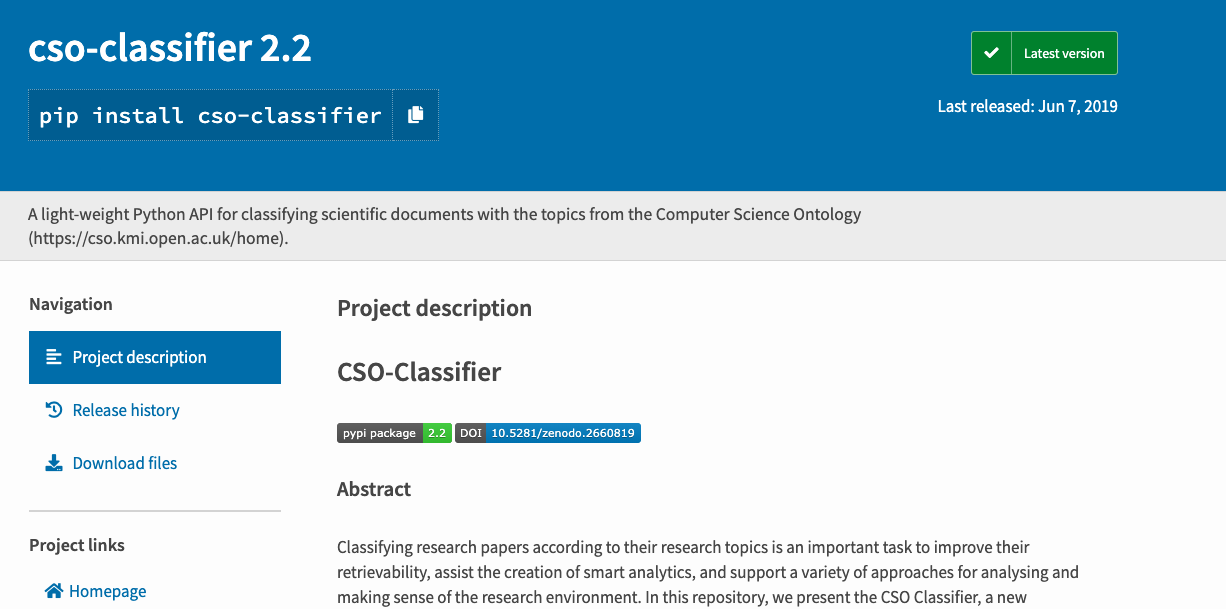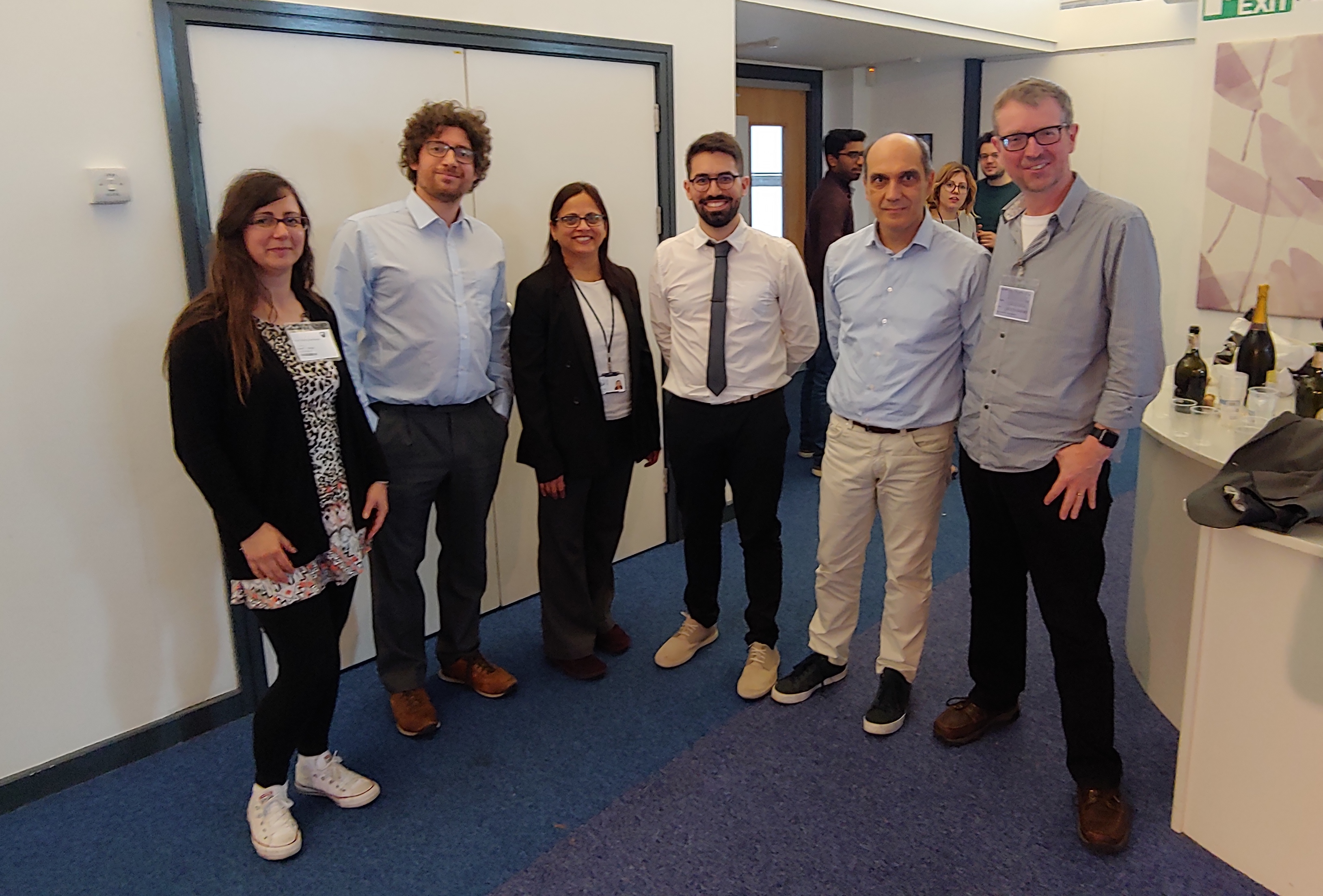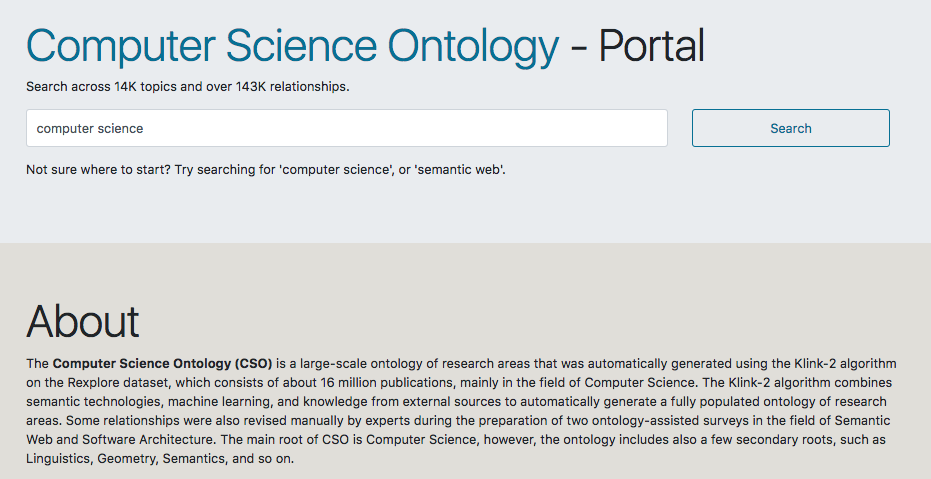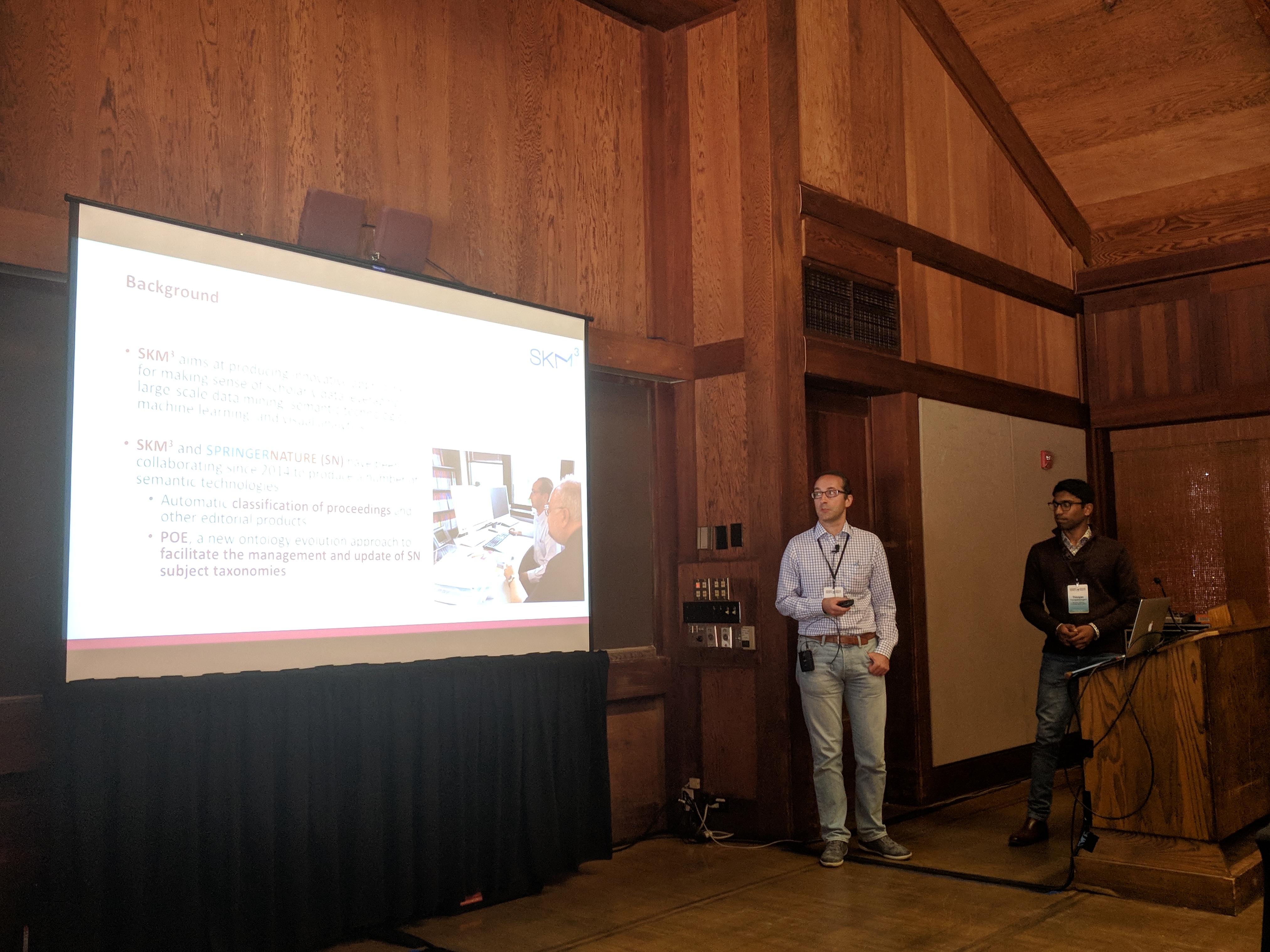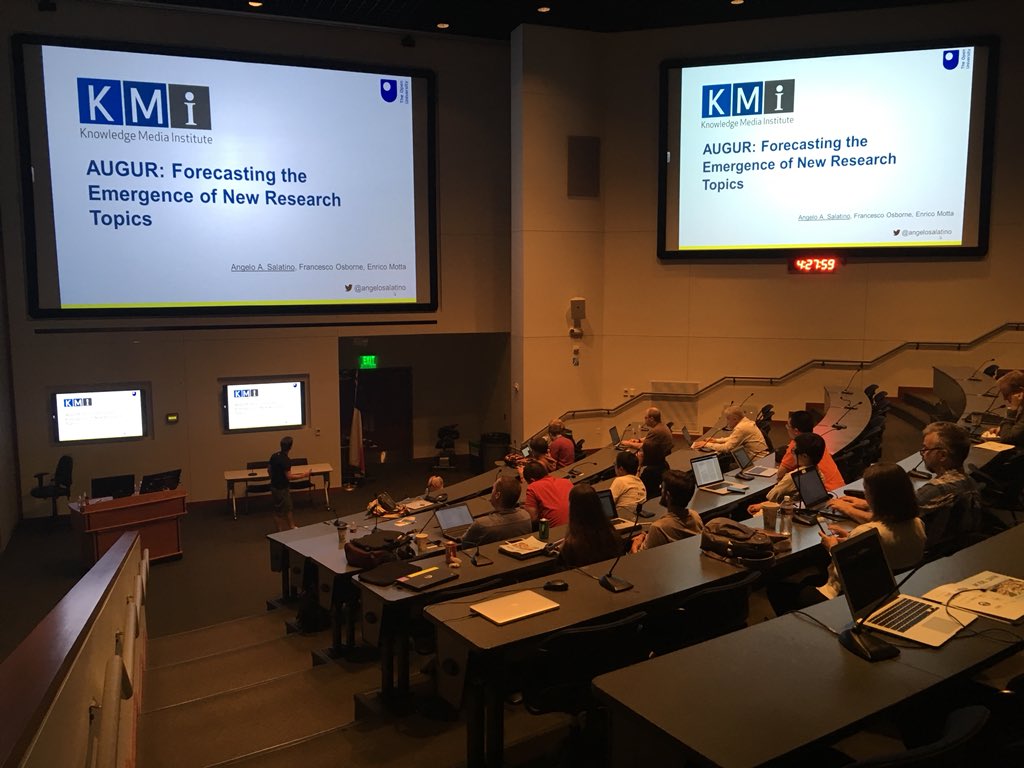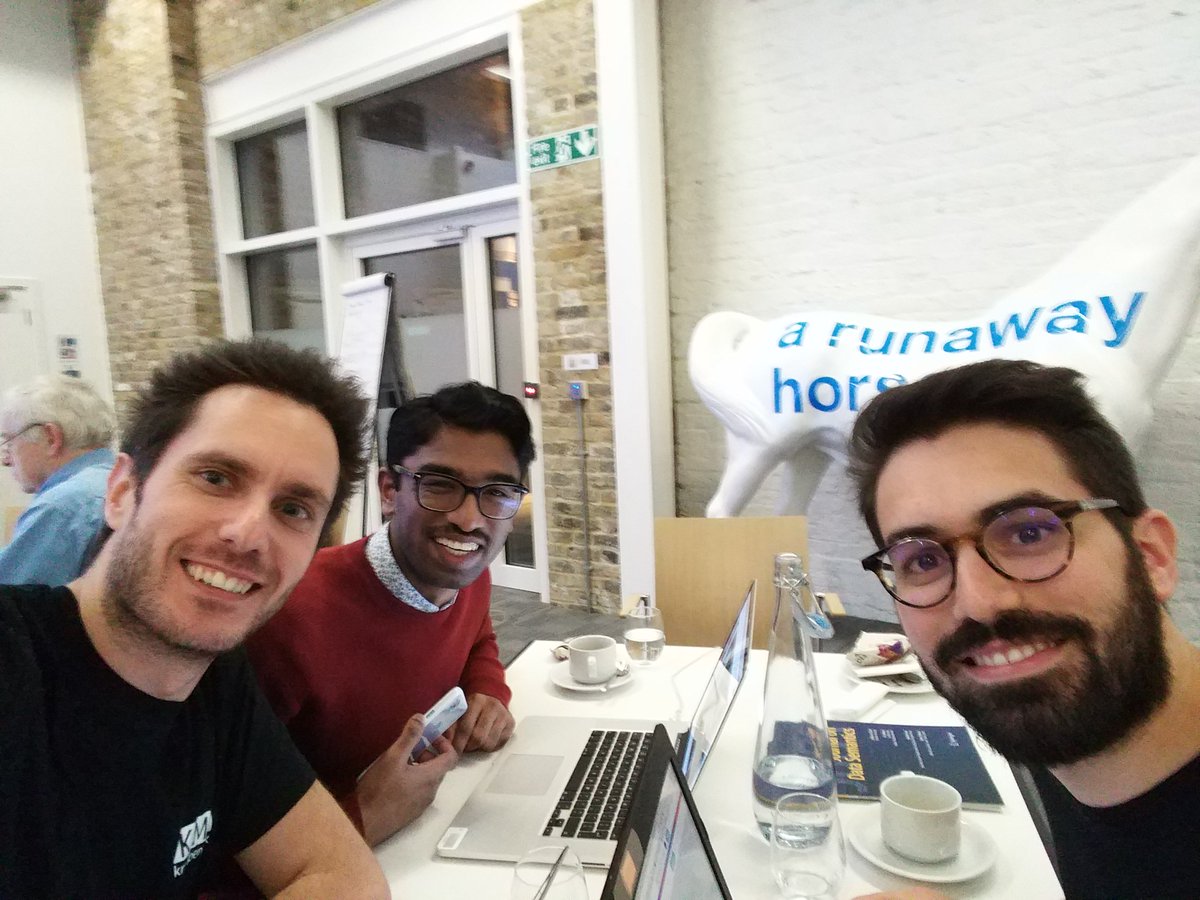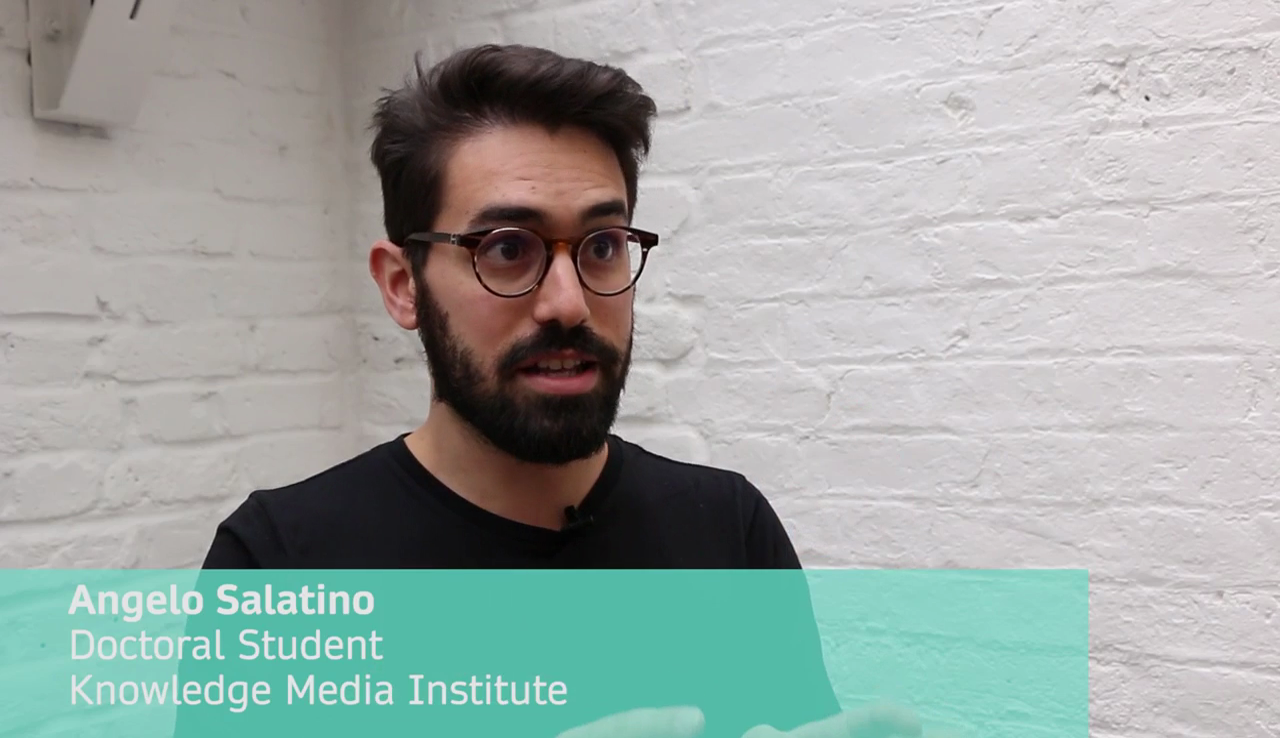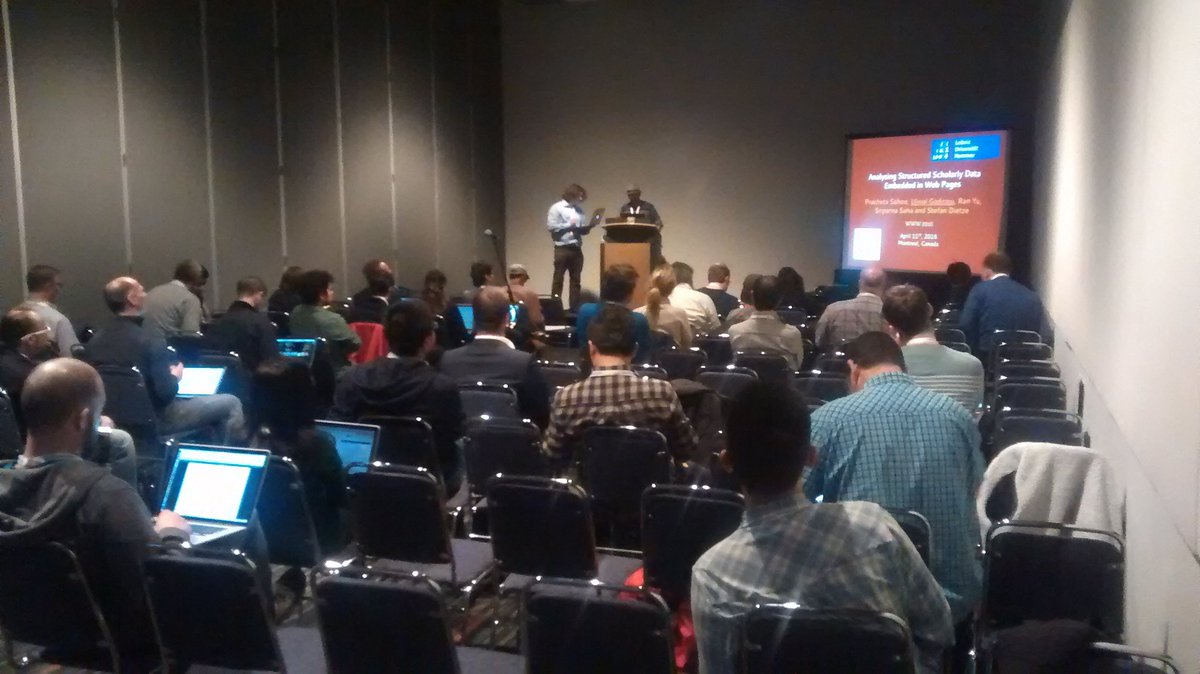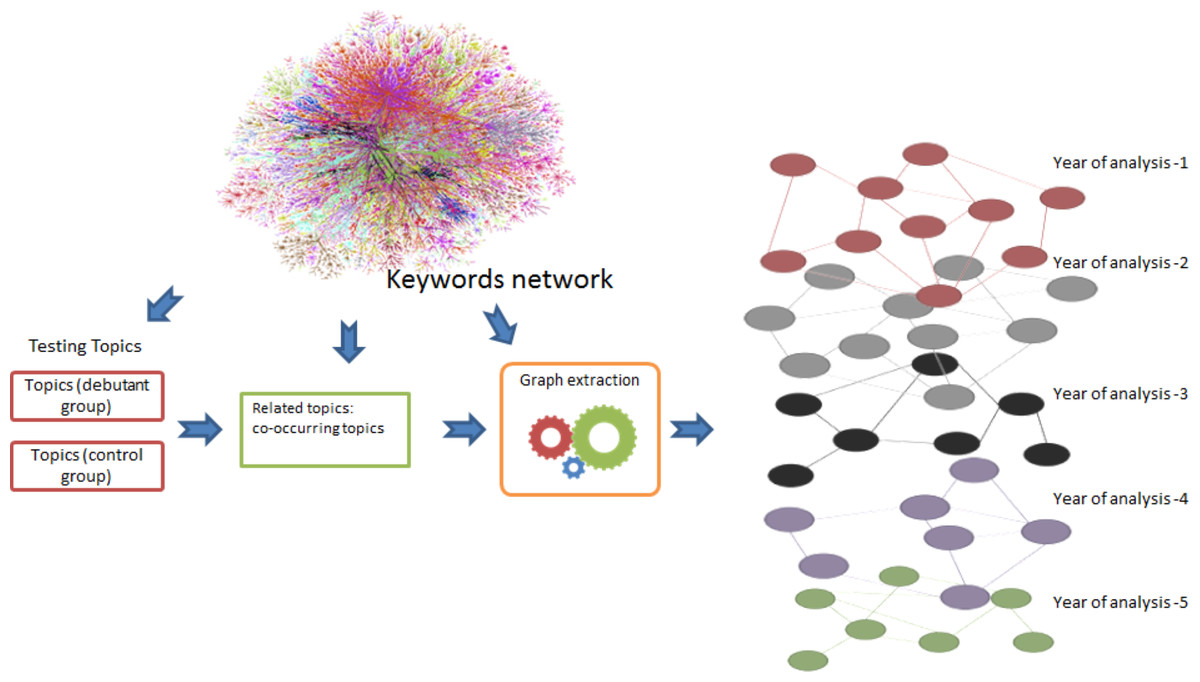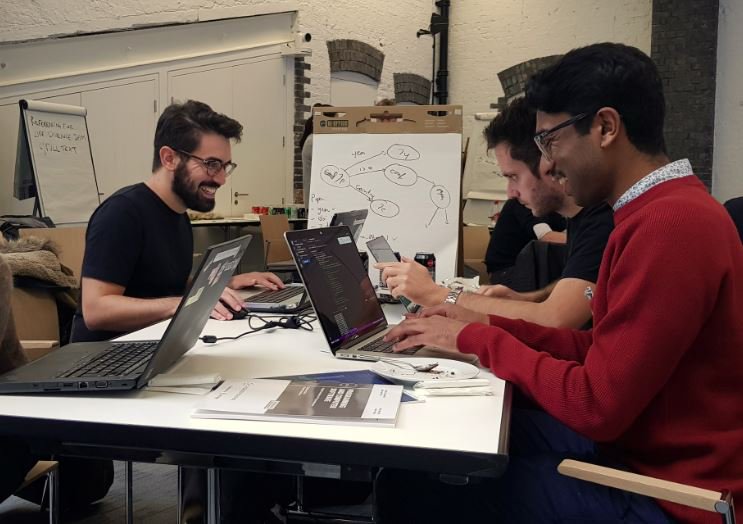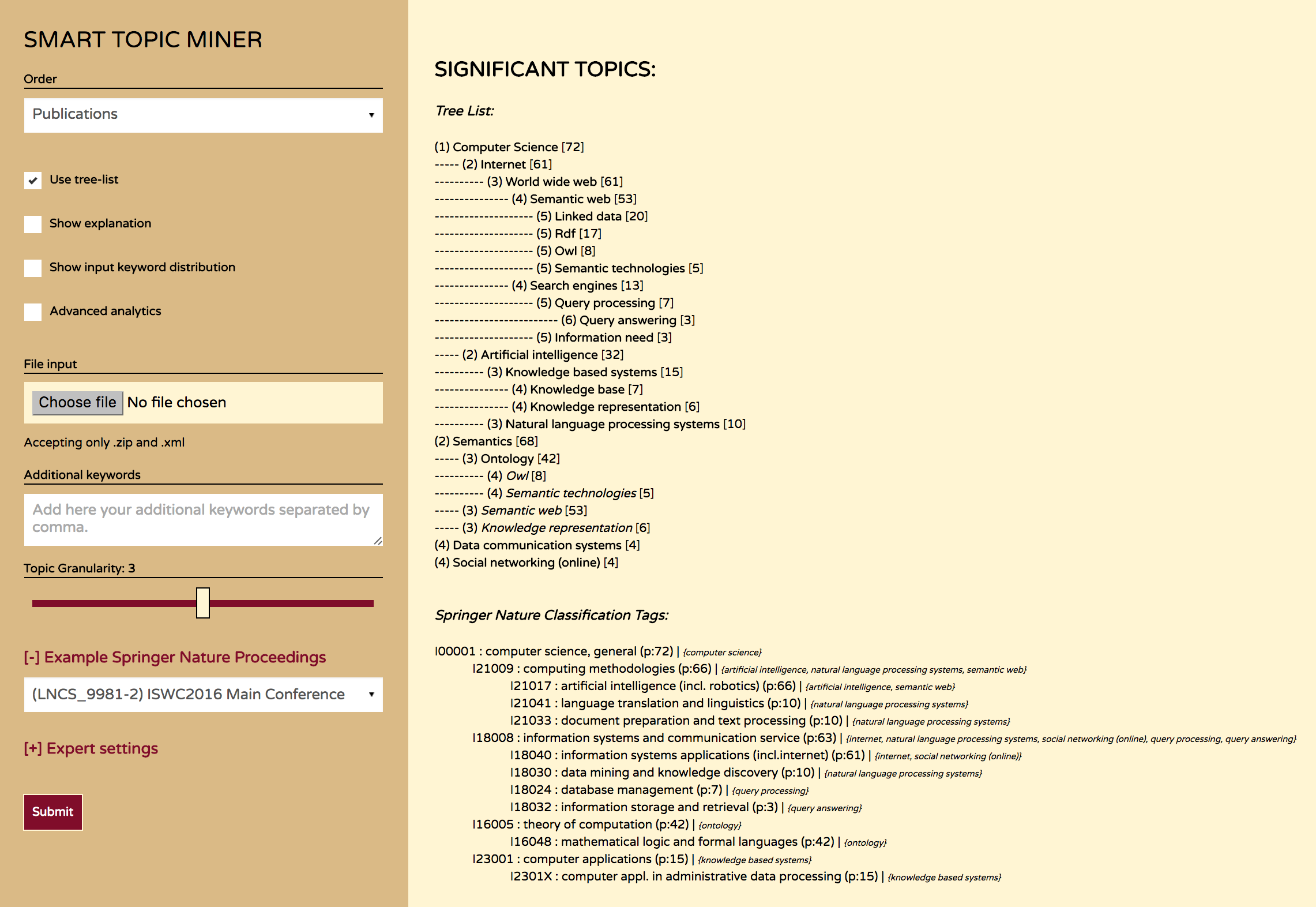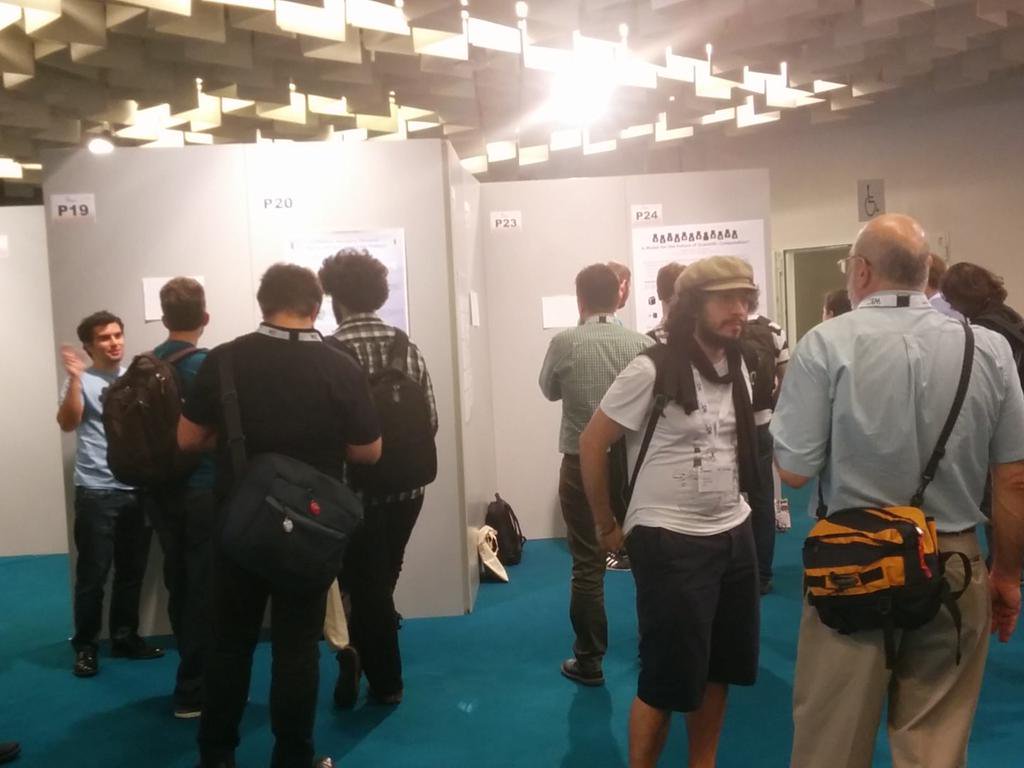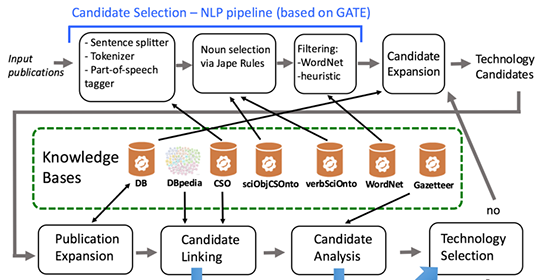News
SKM and Springer Nature Renew Their Partnership for another two years
We are very happy to announce that our team has secured a new two-year contract with Springer Nature (SN), which will continue the long-established strategic partnership until December 2027. This marks the continuation of an exceptional collaboration that has now spanned more than 11 years and represents a strong example of how academia and industry can work together to drive innovation and...
Tracking Stars and Unicorns
KMi secured a new research project “Tracking Stars and Unicorns” funded by the UKRI Metascience unit, with an award of £310,646, to look at successful and unsuccessful proposals within all UKRI councils to track research trends, assess UK competitiveness against global competitors, and understand appropriate funding mechanisms to better support the development of Early Career...
SKM nets UKRI grant to put AI in the grant-review driving seat
Dr. Francesco Osborne, from SKM, has secured ~£200,000 from UKRI’s Metascience Unit to explore how large language models can streamline grant peer review without diluting fairness. The 12-month project, in partnership with the CORE team at KMi, Sheffield and Salford universities, will test four AI roles: triaging low-quality proposals, acting as a third reviewer, synthesising opinions as a...
SKM at Dagstuhl: Open Scholarly Information Systems
Last week, Dr Angelo Salatino attended an invited prestigious Dagstuhl Seminar addressing the status quo, opportunities, and challenges of Open Scholarly Information Systems. Over the last 30 years, a wide range of open scholarly information systems have been developed to serve the scientific community. The seminar has been attended by representatives of metadata aggregators like DBLP,...
SKM’s report from SEMANTiCS 2025
The 21st edition of the International Conference on Semantic Systems, commonly known as SEMANTiCS, took place in Vienna last week. This yearly event brings together academics and industry professionals to transfer knowledge and advance innovation. Around 300 participants from across Europe and beyond attended SEMANTiCS 2025. Major themes discussed included various combinations of symbolic and...
Angelo gives a webinar to ISKO UK Meetup
On 20 May 2025, Dr. Angelo Salatino was invited to give a webinar to the ISKO UK Meetup about our recently published survey "A Survey on Knowledge Organisation Systems of Research Fields: Resources and Challenges". ISKO UK Meetups are known for bringing together academics and practitioners to explore a wide range of practical and technology-oriented topics related to knowledge organisation...
Stanford’s AI Index features SKM research
The Stanford Institute for Human-Centered AI published its 2025 AI Index report this week, providing a comprehensive look at the global state of Artificial Intelligence (AI). The report, now in its eighth edition, tracks and visualises data on technical performance, economic impact, education, policy, and responsible AI to offer an empirical foundation for understanding the field's rapid...
Computer Science Ontology v3.4.1
The SKM3 team, in collaboration with researchers at Stanford University (CA), has released version 3.4.1 of the Computer Science Ontology. This version significantly expands its coverage of Artificial Intelligence, adding about 100 new topics, including Generative AI, Large Language Models, Retrieval Augmented Generation, Generative Adversarial Networks, Prompt Engineering, Zero-Shot Learning,...
Our Research
Our research leverages the combined capabilities of Artificial Intelligence (AI) and Scientific Knowledge Graphs (SKGs). These graphs provide a way to structure and represent scientific information, enabling AI to analyse complex research concepts. Their combination facilitates us in developing novel approaches and large-scale tools to analyse trends, explore research data and metadata,...
Recent News from ISWC 2024
Last week, Francesco, Angelo, and Tanay attended the 23rd International Semantic Web Conference (ISWC) in Baltimore, Maryland. ISWC is the premier conference in the field of Semantic Web, known for its influence and presentation of the latest trends in the field. The main theme of the conference focused on integrating Knowledge Graphs and Large Language Models (LLMs), such as GraphRAG and...
Michael McCoubrey joins the SKM team
On 1 October 2024, KMi’s Scholarly Knowledge Modelling (SKM) team welcomed Michael McCoubrey, who is starting his part-time doctoral research under the supervision of Dr Angelo Salatino, Dr Francesco Osborne, and Prof Enrico Motta. Michael will investigate novel solutions for automatic hypotheses generation using AI. As a Data Scientist at The Open University, Michael brings expertise in...
Report on the Computer Science Ontology and CSO Classifier Impact
Abstract Since their release, both the Computer Science Ontology and the CSO Classifier have received growing attention. They are being employed within several applications and proved to effectively support a wide range of tasks, including trend analysis, enhancing metadata, and assessing impact. Read this article in PDF 1. Introduction The Computer Science Ontology (CSO)...
KMi shines at SEMANTiCS 2024 conference
KMi is delighted to showcase its influential participation at SEMANTiCS 2024. Dr. Angelo Salatino and Dr. Francesco Osborne were actively involved in organizing the conference, a process that spanned the past eight months. This year, SEMANTiCS celebrated its twentieth anniversary, taking place from 17th to 19th September in Amsterdam, at the stunning Meervaart theatre. The SEMANTiCS...
The AIDA Dashboard featured in an OpenAlex Keynote
On 12th September, the LISBibliometrics conference, an established gathering for Bibliometrics and Scientometrics practitioners, was held at the University of Brighton. The theme "Exploring the Bibliometric Universe" focused on diverse topics including research culture measurement, indicators, AI methodologies, research integrity, and addressing societal issues using bibliometrics. Dr Angelo...
Artificial Intelligence for Literature Reviews: Opportunities and Challenges
Exciting news! Our new survey paper about AI tools for literature reviews was published by Artificial Intelligence Review. The paper presents a comprehensive review of the use of Artificial Intelligence (AI) in Systematic Literature Reviews (SLRs). The increasing role of AI in this field shows great potential in providing more effective support for researchers, moving towards the...
Empowering Innovation: Highlights from GenAI & Amazon Bedrock Immersion Day
The field of Artificial Intelligence is rapidly evolving, and to stay ahead of the curve on June 11th Dr. Salatino organized the GenAI & Amazon Bedrock Immersion Day at KMi. This one-day hands-on event, led by Amazon, explored the transformative capabilities of Generative AI (GenAI) and Amazon Bedrock. With 18 attendees joining us in person and 2 participating virtually, the event was a...
SKM3 at ESWC 2024
Dr. Angelo Salatino, Dr. Francesco Osborne, and Prof. Motta recently participated the 2024 edition of the Extended Semantic Web Conference (ESWC), where they showcased their significant contributions to the field through various research papers. ESWC is a premier international conference focusing on semantic web technologies, artificial intelligence, and knowledge graphs. With a mission to...
AI for the Research Ecosystem workshop #AI4RE – round up
On March 22, 2024, the AI for the Research Ecosystem workshop (#AI4RE) took place in London, kindly hosted by UCL in the wonderful surroundings of Chandler House. The workshop was part of the Turing Institue’s AI UK Fringe series of events which took place around the U.K. The workshop focused on the intersection of the recent developments in Artificial Intelligence, such as Large Language...
SKM3 at ISWC 2023
The 22nd International Semantic Web Conference (ISWC 2023), a leading global event for the Semantic Web and Knowledge Graph Community, has successfully wrapped up, marked by notable involvement from our team. In this year’s edition, Francesco Osborne acted as Senior Research Track PC and Angelo Salatino as Research Track PC. Francesco has also co-organised the Workshop on Deep Learning for...
Tanay Aggarwal joins the SKM team
On 1 October 2023, Tanay Aggarwal joined our team, starting his doctoral research under the supervision of Dr Angelo Salatino, Dr Francesco Osborne, and Prof Enrico Motta. Tanay will investigate novel AI solutions for (semi)automatically generating ontologies of research topics. Tanay is not a new face to us, as he joined our team back in 2021 for two visiting periods, collaborating with...
SKM3 at STI 2023
This week STI 2023 – the 27th International Conference on Science, Technology and Innovation Indicators – took place. The Scientometrics community from all around the world gathered in Leiden, Netherlands, to discuss about improving scholarly evaluation practices in the light of cultural change. The conference was organised by CWTS (Leiden University) in collaboration with the European...
SKM3 at SEMANTiCS 2023
Last week, the Semantic Web Community gathered once again for another yearly top-notch event: the 19th International Conference on Semantic Systems; commonly known as SEMANTiCS 2023. The SEMANTiCS conference is a leading European conference focusing on Machine Learning, Data Science, Linked Data and Natural Language Processing. Over the years, SEMANTiCS has established itself as the forum for...
Alessia Pisu joins the SKM team
On 19 June 2023, KMi’s Scholarly Knowledge Modelling (SKM) team welcomed Alessia Pisu, a visiting PhD student from the University of Cagliari (IT). Over the next six months, Alessia will collaborate with Dr Francesco Osborne and Dr Angelo Salatino on developing a novel approach for the automatic generation of ontologies of research areas. Specifically, she will investigate the application of...
Francisco joins the SKM team
On 1 February 2023, KMi’s Scholarly Knowledge Modelling (SKM) team welcomed Francisco Bolaños Burgos, who is starting his doctoral research under the supervision of Dr Francesco Osborne, Dr Angelo Salatino and Prof Enrico Motta. Francisco will investigate new AI-powered solutions for the automatic generation of literature reviews. Francisco has a background in Natural Language Processing...
KMi Researchers Launch the AIDA Dashboard
In partnership with Springer Nature and the University of Cagliari, the Scholarly Knowledge Research Group at The Open University’s Knowledge Media Institute has developed the AIDA Dashboard, an innovative tool for exploring and making sense of the dynamics of research topics, scientific conferences and journals in Computer Science. These capabilities can be used to provide insights about...
Springer Nature and KMi extend their strategic collaboration until March 2022
KMi’s Scholarly Knowledge Mining team (SKM) and Springer Nature have formally agreed to extend their strategic collaboration agreement until March 2022. The new contract defines the latest chapter in a highly successful strategic partnership, which started back in 2014 and has since gone from strength to strength. During these years the SKM team has established itself has one of the...
Klink-2 among the top-cited ISWC papers in the past 5 years
We are extremely pleased to see that our paper about Klink-2 is included in the list generated by Google Scholar (link), which presents the most cited papers published in the past 5 years at the International Semantic Web Conference (ISWC). This is the main international forum for showcasing the latest academic and industrial results for the Semantic Web and Linked Data...
The CSO Classifier nominated for the Best Paper Award
Last week, Angelo was in Oslo for the 23rd edition of the International Conference on Theory and Practice of Digital Libraries (TPDL2019). Every year, this conference attracts many researchers from all over the world, working in the fields of digital libraries, information retrieval, text analysis, web archives, and many others. Angelo attended the conference to present his recent...
CSO-Classifier available on PIP
Classifying research papers according to their research topics is an important task to improve their retrievability, assist the creation of smart analytics, and support a variety of approaches for analysing and making sense of the research environment. In this repository, we present the CSO Classifier, a new unsupervised approach for automatically classifying research papers according to...
Angelo succeeds in his VIVA
Congratulations to Angelo Salatino for succeeding in his viva! On 31st May 2019, Angelo Salatino successfully defended his PhD thesis on Early Detection of Research Trends. The thesis is a body of research work over the last three years leading to a successful system that identifies the emergence of new research topics up to two years before they emerge (i.e., at their embryonic stage). The work...
New release: CSO Classifier v2.1
We are pleased to announce that we recently created a new release of the CSO Classifier (v2.1), an application for automatically classifying research papers according to the Computer Science Ontology (CSO). Recently, we have been intensively working on improving its scalability, removing all its bottlenecks and making sure it could be run on large corpus. Specifically, in this version we...
The Open University and Springer Nature launch the Computer Science Ontology
The Knowledge Media Institute (KMi) of The Open University and Springer Nature are partnering to provide a comprehensive Computer Science Ontology (CSO) to a broad range of communities engaged with scholarly data. CSO can be accessed free of charge through the CSO Portal, a web application that enables users to download, explore, and provide feedback on the ontology. Ontologies of research...
SKM3 at ISWC 2018
Every year the International Semantic Web Conference (ISWC) is the main destination for many researchers in the Semantic Web community. The 17th edition of the conference was held last week at the Asilomar Conference Grounds in Monterey, California, and it hosted around 500 researchers coming from all around the world. This year the SKM3 presented three full papers, covering all the main...
AUGUR presented at JCDL 2018
The ACM/IEEE Joint Conference on Digital Libraries in 2018 (JCDL 2018) took place last week in Fort Worth (Texas). Angelo attended the conference to discuss his recent advances showed in the research paper "AUGUR: Forecasting the Emergence of New Research Topics". In brief, Augur is a framework analysing the diachronic relationships between research areas and is able to detect clusters of topics...
Great success for the SKM3 team at ISWC 2018
The SKM3 team, the KMi research group on scholarly analytics, will present three full papers at the 2018 International Semantic Web Conference (ISWC), the premiere international venue for the Semantic Web and Linked Data communities, which will be held in October in Monterey, California. The SKM3 team succeeded in having a paper accepted in each of the main tracks of the conference: Research...
Best Paper Award at SAVE-SD 2018
The SKM³ team is proud to announce that the paper "Geographical trends in research: a preliminary analysis on authors' affiliations" presented by Andrea at the workshop on Semantics, Analytics, Visualisation: Enhancing Scholarly Dissemination (SAVE-SD) held at The Web Conference 2018 in Lyon has been awarded the Best Paper Award. We thank the organising committee and Springer for the...
Springer Nature HackDay Summary Video
Couple of months ago, the SKM3 attended the Springer Nature HackDay (here is the post). Just not long ago, Springer Nature released a short video featuring us. Summarised is also Angelo's interview, in which he discusses the advantages of making scholarly datasets, as SciGraph, available to the...
SAVE-SD 2018
After the great success of the past three editions, we are pleased to announce the SAVE-SD 2018 workshop. SAVE-SD aims to bring together publishers, companies and researchers from different fields (including Document and Knowledge Engineering, Semantic Web, Natural Language Processing, Scholarly Communication, Bibliometrics, Human-Computer Interaction, Information Visualisation,...
Our paper is among the top 5 most read in its areas
Great news for our team! A paper authored by Angelo A. Salatino, Francesco Osborne and Enrico Motta, published last June to PeerJ Computer Science journal, was one of the top 5 most viewed in the areas of Artificial Intelligence, Data Science and Digital Libraries. The paper entitled "How are topics born? Understanding the research dynamics preceding the emergence of new areas" is a...
Springer Nature HackDay
On the 29th November 2017, the SKM3 team attended the second edition of SpringerNature HackDay in London (@ SpringerNature Campus). Aliaksandr Birukou, Executive Editor of Computer Science at Springer Nature and collaborator of our research team at the Knowledge Media Institute, also joined Andrea, Thiviyan and Angelo on the HackDay. The whole event aimed at joining together the skills...
How are topics born? Understanding the research dynamics preceding the emergence of new areas
"How are topics born? Understanding the research dynamics preceding the emergence of new areas" is a peer-reviewed paper submitted to PeerJ Computer Science. The paper has been submitted in July 2016 and accepted in May 2017. All the co-authors are thankful to the reviewers and the editor for providing insightful comments and thus improving the manuscript. Authors: Angelo Antonio...
Department Research Seminar: Early Detection of Research Topics
On the 8th February, Angelo delivered a seminar to the KMi in which he described the work he has been doing in the last two years for his postgraduate research. He started with a little bit of introduction about science. Shortly, he moved to the currently available technologies for keeping track of the development of the different research areas. He showed how this technologies were not...
The Rexplore team and Springer Nature launch a new collaboration
The Rexplore team and Springer Nature have launched a new research project with the aim of developing new innovative solutions to support business processes in Springer Nature. This new initiative builds on our previous collaborations which focus on two research directions. The first one is Smart Topic Miner, a web application which uses semantic web technologies to classify scholarly...
SAVE-SD 2017: a meeting point for the Scholarly Data Community
After the success of the past two editions, the third edition of the Semantics, Analytics, Visualisation: Enhancing Scholarly Data workshop (SAVE-SD) has been recently announced. SAVE-SD aims to bring together publishers, companies and researchers from different fields to bridge the gap between the theoretical and practical aspects in regards to scholarly data. The workshop was co-founded and...
Strong presence of the Rexplore team at EKAW 2016
Last week Francesco Osborne presented two research papers of our team at the 20th International Conference on Knowledge Engineering and Knowledge Management (EKAW 2016) in Bologna, Italy. The first one introduces TechMiner, a novel tool which combines NLP, machine learning and semantic technologies, for mining technologies from research publications and generating an OWL ontology describing...
Smart Topic Miner shines at ISWC 2016
Last week Francesco Osborne attended the 15th edition of the International Semantic Web Conference (ISWC 2016) where he presented our work on the Smart Topic Miner (STM), the innovative application developed in collaboration with Springer Nature for automatically classifying research publications. STM was designed to classify proceedings and more in general any collection of articles by tagging...
A new solution for classifying scholarly publications: Smart Topic Miner
The process of classifying scholarly outputs is crucial to ensure timely access to knowledge. This process is typically carried out manually by expert editors, leading to high costs and slow throughput. For these reasons, the Rexplore team, in collaboration with Springer Nature, created Smart Topic Miner (STM), a novel solution which uses semantic web technologies to classify scholarly...
Rexplore at ISWC 2015
Francesco Osborne attended the 14th edition of the prestigious International Semantic Web Conference where he presented the paper “Klink-2: Integrating Multiple Web Sources to Generate Semantic Topic Networks” in the highly selective research track. The paper introduced Klink-2, the new version of the Klink algorithm for the automatic generation of ontologies of research topics. Klink-2...
First Prize for Rexplore at ESWC Semantic Publishing Challenge
The groundbreaking Rexplore system for analysing scholarly data was awarded first prize, as Best Semantic Publishing Application, at the "Semantic Publishing Challenge", which was held in the context of the 11th Extended Semantic Web Conference. Rexplore was chosen from a number of innovative Semantic Web applications by a jury comprising both researchers and commercial publishers. The award was...
KMi attends the 12th International Semantic Web Conference
Enrico Motta and Francesco Osborne presented their paper "Exploring Scholarly Data with Rexplore" (co-authored with Paul Mulholland) in the highly competitive Research Track (21% acceptance rate). Mathieu D'Aquin and Keerthi Thomas contributed to the Workshop "Society, Privacy and the Semantic Web - Policy and Technology" with the paper "Semantic Web Technologies for Social Translucence and...
